A G20 High Level Independent Panel (HLIP) on Financing the Global Commons for Pandemic Preparedness and Response was established on 26 January 2021.
The HLIP is tasked with:
- Identifying the gaps in the financing system for the global commons for pandemic prevention, surveillance, preparedness and response.
- Proposing actionable solutions to meet these gaps on a systematic and sustainable basis, and optimally leverage resources from the public, private and philanthropic sectors and the international financial institutions (IFIs).
The HLIP’s members, predominantly economic and finance experts, serve in their individual and independent capacities. The HLIP is providing a Progress Note to the G20 Finance Ministers and Central Bank Governors at their meeting in April 2021, and will present its full recommendations during their July 2021 meeting.
You can read the press release from January 2021 here:
https://www.mef.gov.it/en/inevidenza/The-G20-establishes-a-High-Level-Independent-Panel-on-financing-the-Global-Pandemic-Preparedness-and-Response-00001/
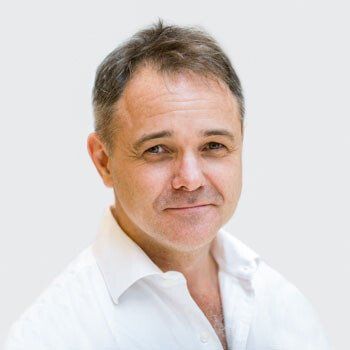
Jeremy Farrar
Panel Advisor, HLIP
Director, Wellcome Trust
Sir Jeremy Farrar OBE FMedSci FRS is the Director of Wellcome, a global charitable foundation which supports science to solve urgent health challenges. Jeremy’s whole career has been dedicated to protecting and improving global health. As a researcher, he specialised in infectious diseases, and he has published more than 600 papers. Born in Singapore, Jeremy lived there and in Cyprus, New Zealand and Libya as a child before moving to the UK as a teenager. He holds degrees in immunology and medicine from University College London and a doctorate in neuroimmunology from the University of Oxford. He trained as a doctor in London, Edinburgh, Melbourne, San Francisco and Oxford. Jeremy spent 18 years leading the Clinical Research Unit at the Hospital for Tropical Diseases in Ho Chi Minh City in Vietnam, where he made many pivotal advances in the understanding of diseases like tuberculosis (TB), malaria, typhoid, dengue and influenza, as well as helping to train scientists from across Southeast Asia and beyond. He joined Wellcome as Director in 2013. As part of the response to the Covid-19 pandemic, Jeremy is a member of the UK government’s Scientific Advisory Group for Emergencies (SAGE), the UK Vaccine Taskforce and the Principles Group of the ACT-Accelerator hosted by the World Health Organization (WHO), and he chairs the WHO R&D Blueprint Advisory Group. As well as sharing his expertise, he champions rapid investment in research on Covid-19 testing, treatments and vaccines, and argues that everyone – not only people who live in rich countries – should benefit equally from the discoveries that result. He has held a number of other advisory roles for governments and international bodies such as the WHO. He was named 12th in the Fortune list of the World’s 50 Greatest Leaders in 2015 and was awarded the Memorial Medal and Ho Chi Minh City Medal from the Government of Vietnam for services to public health, medicine and research. He is a Fellow of the Royal Society, the European Molecular Biology Organization, the US National Academies and the UK Academy of Medical Sciences. In 2018 he received President Jimmy and Rosalynn Carter Humanitarian of the Year Award and in 2019 was knighted for services to global health. Jeremy lives in Oxford with his wife and children. He loves all sport but he’s most passionate about cricket and still plays regularly for Steeple Aston Cricket Club. He’s also a keen walker, whether that’s in the Alps or across the Oxfordshire hills with the family dogs, Coco and Sẽp-Y
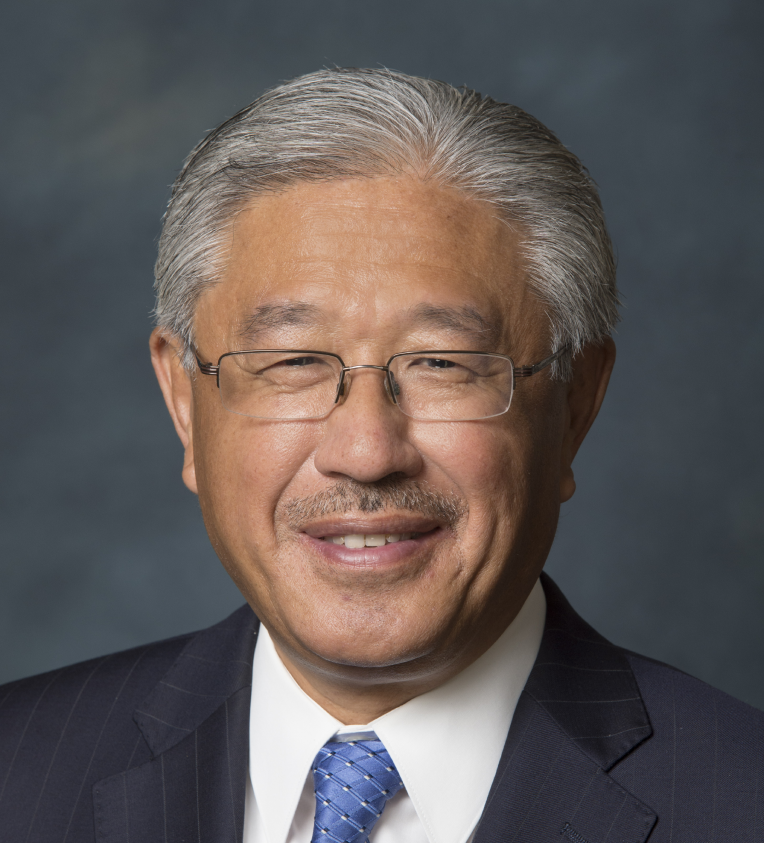
Victor J. Dzau
Panel Advisor, HLIP
President, National Academy of Medicine
Victor J. Dzau is the President of the US National Academy of Medicine (NAM). In addition, he serves as Vice-Chair of the US National Research Council. He is Chancellor Emeritus and James B. Duke Professor of Medicine at Duke University and the past President and CEO of the Duke University Health System. Previously, Dr. Dzau was the Hersey Professor of Medicine and Chairman of Medicine at Harvard Medical School’s Brigham and Women’s Hospital, as well as Bloomfield Professor and Chairman of Medicine at Stanford University.
He is an internationally acclaimed leader and physician-scientist who has made a significant impact through his seminal research in cardiovascular medicine and genetics. His research laid the foundation for the development of the class of lifesaving drugs known as ACE inhibitors, used globally to treat high blood pressure and congestive heart failure. He pioneered gene therapy for vascular disease and was the first to introduce DNA decoy molecules to block transcription as gene therapy in humen. His pioneering research in cardiovascular regeneration led to the Paracrine Hypothesis of stem cell action and the therapeutic strategy of direct cardiac reprogramming.
In his role as a leader in health, Dr. Dzau has led efforts in innovation to improve health. 5 years ago, he led the reorganization of the Institute of Medicine (I OM ) into the new National Academy of Medicine. The NAM addresses health issues of critical importance; advances science and addresses medical, social, and ethical aspects of scientific advancements in health; and inspires the nation and the globe to coalesce around a shared priority and audacious goal to advance health. During his tenure, Dr. Dzau has designed and led important initiatives such as the Commission on a Global Health Risk Framework for the Future, Roadmap for Healthy Longevity, the International Human Gene Editing Initiative; Vital Directions for Health and Health Care; Confronting the Opioid Crisis and the Grand Challenge in Climate Change and Human Health.
Dr. Dzau is active in Global Health. He launched the Duke Institute of Global Health and Duke NUS Graduate School of Medicine Singapore, founded the Division of Global Health Equity at Harvard Brigham Women’s Hospital (headed by Paul Farmer) and chairs the International Advisory Board of McGill’s School of Population and Global Health (led by Tim Evans). He serves on the board of the Global Preparedness Monitoring Board (GPMB), is a Principal of the Global Access to COVID Tools Accelerator (ACT Accelerator), was on the board of Coalition of Epidemic Preparedness and Innovation (CEPI) and is on the board of the Institute of Health Metrics and Evaluation (IHME). He served on the Board of Health Governors of the World Economic Forum and chaired its Global Futures Council on Healthy Longevity and Human Enhancement. Dr. Dzau is co-chair of the Healthy Brain Global Initiative. He has launched important initiatives such as the Global Health Risk Framework (2016), the Global Health and the Future Role of the US (2017), Integrating Clinical Research into Epidemic Response: The Ebola Experience (2017); Crossing the Global Quality Chasm (2018) and the Global Grand Challenge in Healthy Longevity (2019). Three universities ( McGill, Harvard Brigham, and Duke) have established Global Health Lectureships in his name.
Dr. Dzau has served on the Advisory Committee to the NIH Director and as Chair of the NIH Cardiovascular Disease Advisory Committee. He chairs the Steering Committee of the NIH Progenitor Cell Translational Consortium. He serves on the board of Imperial College Health Partners of UK, Health and Biomedical Sciences Council of Singapore, Chairs International Science Advisory Committee of the Qatar Precision Medicine Institute, Chairs the Scientific Boards of the Peter Munk Cardiac Center of University of Toronto and Institute of Cardiovascular and Medical Sciences of University of Glasgow.
Among his many honors and recognitions are the Gustav Nylin Medal from the Swedish Royal College of Medicine, the Research Achievement Award from the American Heart Association, the Ellis Island Medal of Honor, the Poulzer Prize of the European Academy of Sciences and Arts and the Henry Freisen International Prize. He is a member of the National Academy of Medicine, American Academy of Arts and Sciences, Academia Sinica and European Academy of Sciences and Arts. He was made an Honorary Citizen of Singapore, the highest honor conferred to an individual. He has received 16 honorary doctorates.
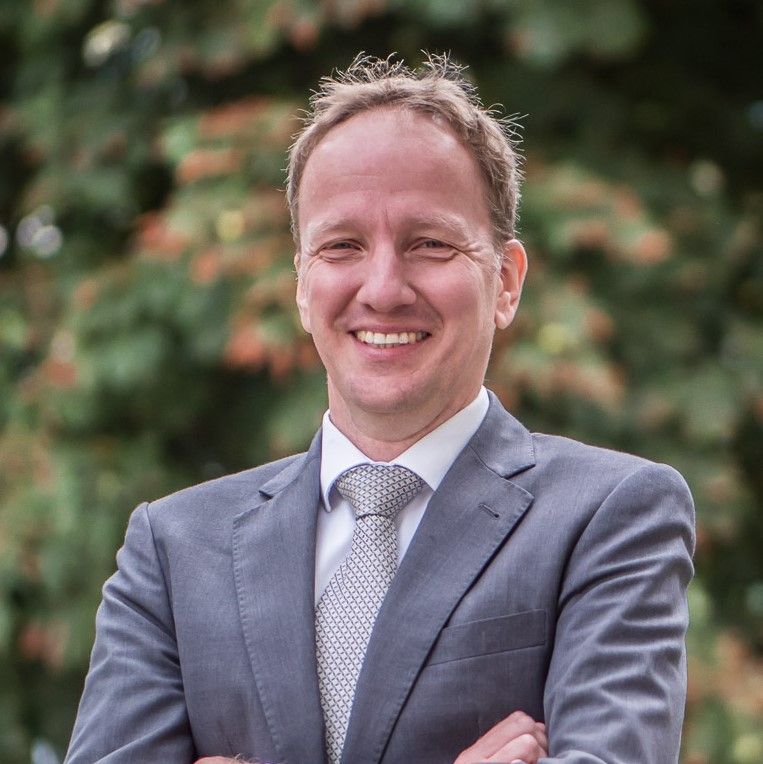
Guntram Wolff
Project Director & Panel Member
Director, Bruegel
Guntram Wolff is the Director of Bruegel. His research focuses on the European economy and governance, fiscal and monetary policy, and global finance. He regularly testifies at the European Finance Ministers' ECOFIN meeting, the European Parliament, the German Parliament (Bundestag) and the French Parliament (Assemblée Nationale). From 2012-16, he was a member of the French prime minister's Conseil d'Analyse Economique. Guntram Wolff is also a member of the Solvay Brussels School's international advisory board of the Brussels Free University. He joined Bruegel from the European Commission, where he worked on the macroeconomics of the euro area and the reform of euro-area governance. Prior to joining the Commission, he was coordinating the research team on fiscal policy at Deutsche Bundesbank. He also worked as an adviser to the International Monetary Fund. He holds a Ph.D. from the University of Bonn, studied economics in Bonn, Toulouse, Pittsburgh, and Passau, and previously taught economics at the University of Pittsburgh and at Université libre de Bruxelles. He has published numerous papers in leading academic journals. Guntram is fluent in German, English, French and has good notions of Bulgarian and Spanish. His columns and policy work are published and cited in leading international media such as the Financial Times, the New York Times, Wall Street Journal, Caixin, Nikkei, El Pais, La Stampa, FAZ, Handelsblatt, Les Echos, BBC, ZDF, and others.
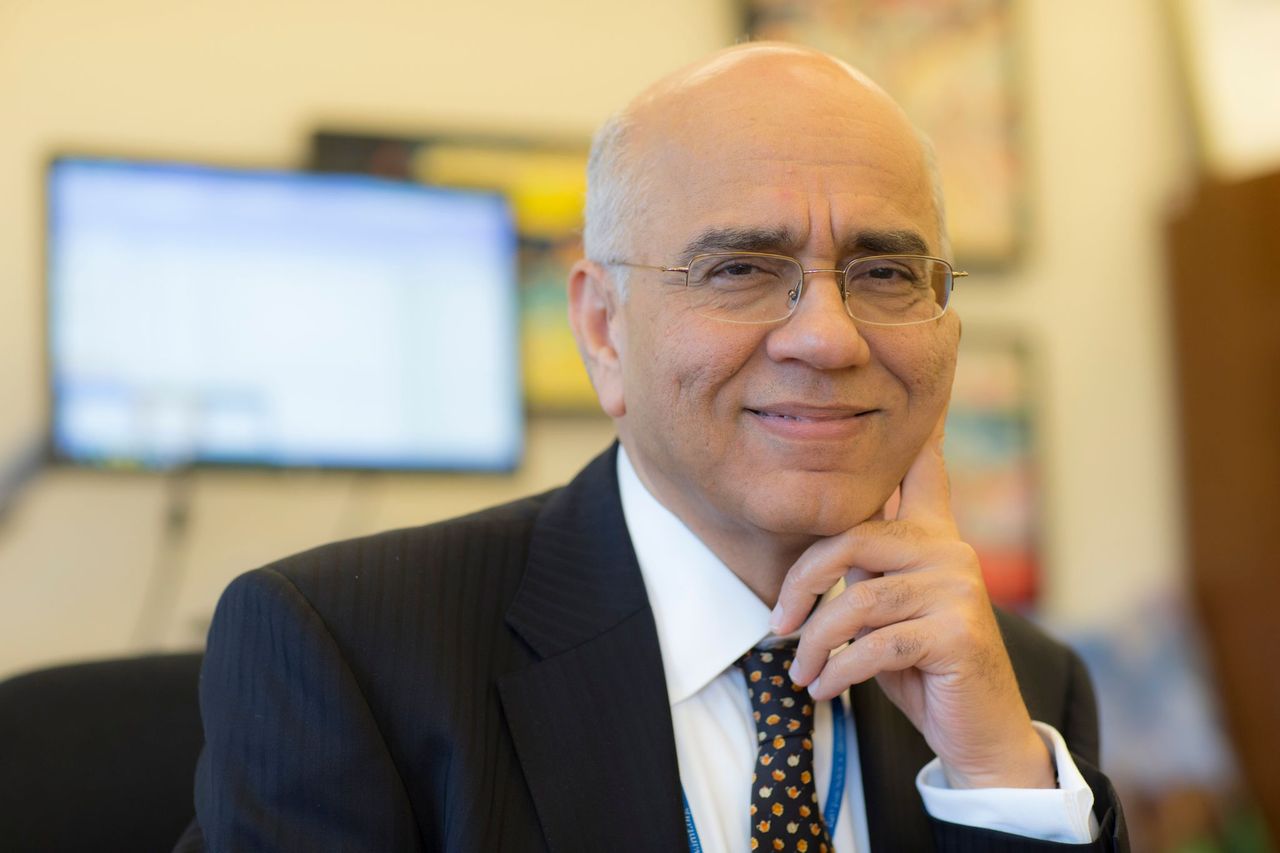
Masood Ahmed
Project Director & Panel Member
President, Center for Global Development
Masood Ahmed is president of the Center for Global Development. He joined the Center in January 2017, capping a 35-year career driving economic development policy initiatives relating to debt, aid effectiveness, trade, and global economic prospects at major international institutions including the IMF, World Bank, and DFID.
Ahmed joined CGD from the IMF, where he served for eight years as director, Middle East and Central Asia Department, earning praise from Managing Director Christine Lagarde as a “visionary leader.” In that role, he oversaw the Fund's operations in 32 countries and managed relationships with key national and regional policymakers and stakeholders. In previous years, he also served as the IMF's director of external relations, and deputy director of the Policy Development and Review Department.
From 2003-2006, Ahmed served as director-general, Policy, and International at the UK government department for International Development (DFID). In that role, he was responsible for advising UK ministers on development issues and overseeing the UK's relationship with international development institutions such as the World Bank.
Ahmed also worked at the World Bank from 1979-2000 in various managerial and economist positions, rising to become Vice President, Poverty Reduction and Economic Management. In that role, he led the HIPC (heavily indebted poor countries) debt relief initiative, which has to date brought relief from debt burdens to 36 of the world's poorest nations.
Born and raised in Pakistan, Ahmed moved to London in 1971 to study at the LSE where he obtained a BSc Honors as well as an MSc Econ with distinction. He is a UK national.
Ahmed is a leading expert on Middle East economics, having served on the Advisory Board of the LSEMiddle East Center, as well as on the World Economic Forum's Global Agenda Council on the Middle East and North Africa.
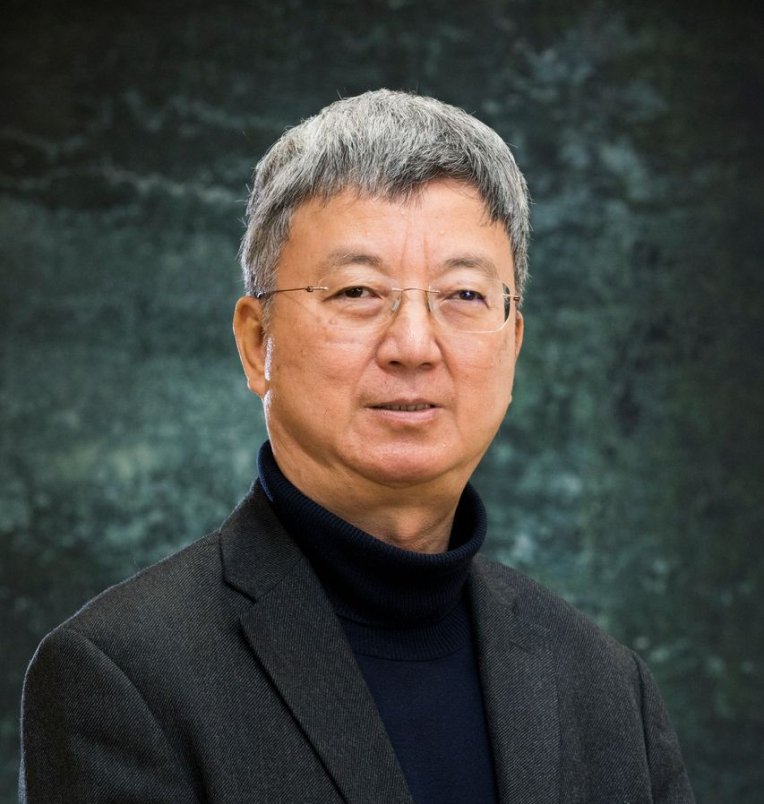
Min Zhu
Panel Member
Head of National Financial Research Institute, Tsinghua University
Former Deputy Managing Director, IMF
Dr. Min Zhu is currently the Chairman of the National Institute of Financial Research at Tsinghua university, Vice Chairman of China Center for International Economic Exchanges, Sino-UK Professional and Financial Service Envoy for the Belt and Road Initiative. He is a member of the "14th Five-Year Plan" Expert Committee, a member of the Foreign Policy Advisory Committee of the Ministry of Foreign Affairs, and a member of the Expert Advisory Committee of the State Internet Information Office, a commissioner of Lancet Global COVID-19 Commission. He is also a Board Trustee of Fudan University, World Economic Forum, and Peterson Institute for International Economics. Dr. Zhu was a Deputy Managing Director at IMF from July 2011 to July 2016. Before that, Dr. Zhu was a Deputy Governor of the People’s Bank of China, and prior to his service at China’s Central Bank, he served as a Group Executive Vice President of the Bank of China. Dr. Zhu also worked at the World Bank and taught economics at both Johns Hopkins University and Fudan University.
Dr. Zhu received his Ph.D. and M.A. in economics from Johns Hopkins University, an M.P.A. from the Woodrow Wilson School of Public International Affairs at Princeton University, and a B.A. in economics from Fudan University. He was a Board Trustee of Princeton University and International Council Member of Booth School of Chicago University. Dr. Zhu was awarded Distinguish Alumnus of Fudan University and Johns Hopkins University. He was also awarded China Economic Leader in 2014, Global Influential Chinese in 2015, CFV-10 year Global Financial Leader in 2016, and China Scholar of the year in 2018. In 2019, D r. Zhu was shortlisted in the list of 40 returnees in the 40 years of China's reform and opening up and the list of 70 returnees in the 70 years since the founding of the People's Republic of China.
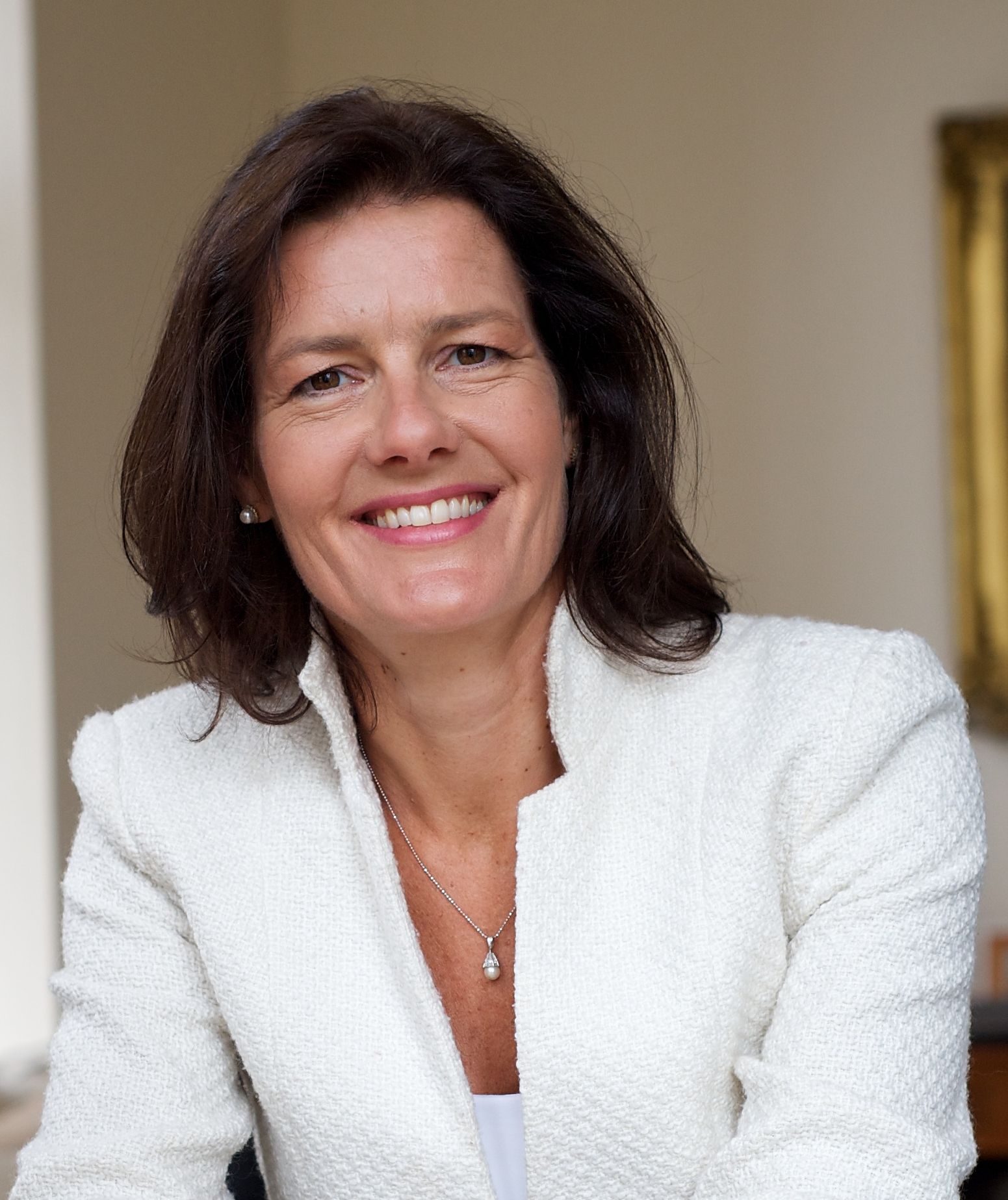
Ngaire Woods
Panel Member
Dean, Blavatnik School of Government University of Oxford
Professor Ngaire Woods is the founding Dean of the Blavatnik School of Government and Professor of Global Economic Governance at Oxford University. Her research focuses on how to enhance the governance of organizations, the challenges of globalization, global development, and the role of international institutions and global economic governance. She founded the Global Economic Governance Programme at Oxford University and co-founded (with Robert O. Keohane) the Oxford-Princeton Global Leaders Fellowship programme. She led the creation of the Blavatnik School of Government.
Ngaire Woods serves as a member of the Asian Infrastructure Investment Bank’s International Advisory Panel and on the Boards of the Mo Ibra him Foundation and the Stephen A. Schwarzman Education Foundation. She is an Independent Non-Executive Director at Rio Tinto (effective September 2020). She sits on the advisory boards of the Centre for Global Development, the African Leadership Institute, the School of Management and Public Policy at Tsinghua University, and the Nelson Mandela School of Public Policy at Cape Town University. She is Chair of the Harvard University Visiting Committee on International Engagement and a member of the Department for International Trade’s Trade and Economy Panel. She is also an honorary governor of the Ditchley Foundation and is co-Chair of the World Economic Forum Global Future Council on Frontier Risks.
Previously, she served as a Non-Executive Director on the Arup Global Group Board and on the Board of the Center for International Governance Innovation. From 2016-2018, she was Co-Chair of the World Economic Forum’s Global Future Council on Values, Technology and Governance. She has also served as a member of the IMF European Regional Advisory Group, and as an Advisor to the IMF Board, to the Government of Oman’s Vision 2040, to the African Development Bank, to the UNDP’s Human Development Report, and to the Commonwealth Heads of Government.
Ngaire Woods has published extensively on international institutions, the global economy, globalization, and governance, including the following books: The Politics of Global Regulation (with Walter Mattli, Oxford University Press, 2009), Networks of Influence? Developing Countries in a Networked Global Order (with Leonardo Martinez-Diaz, Oxford University Press, 2009), The Globalizers: the IMF, the World Bank and their Borrowers (Cornell University Press, 2006), Exporting Good Governance: Temptations and Challenges in Canada’s Aid Program (with Jennifer Welsh, Laurier University Press, 2007), and Making Self-Regulation Effective in Developing Countries (with Dana Brown, Oxford University Press, 2007). She has previously published The Political Economy of Globalization (Macmillan , 2000), Inequality, Globalization and World Politics (with Andrew Hurrell: Oxford University Press, 1999), Explaining International Relations since 1945 (Oxford University Press, 1986). She has published numerous articles on international institutions, globalization, and governance. She has also presented numerous documentaries for BBC Radio 4 and BBC TV2.
She was educated at Auckland University (BA in economics, LLB Hons in law). She studied at Balliol College, Oxford as a New Zealand Rhodes Scholar, completing an MPhil (with Distinction) and then DPhil (in 1992) in International Relations. She won a Junior Research Fellowship at New College, Oxford (1990-1992) and subsequently taught at Harvard University (Government Department) before taking up her Fellowship at University College, Oxford and academic roles at Oxford University.
Ngaire Woods was appointed Commander of the Most Excellent Order of the British Empire (CBE) in the 2018 New Year's Honours for services to Higher Education and Public Policy. She is a Fellow of the Academy of Social Sciences and an International Honorary Member of the American Academy of Arts and Sciences.
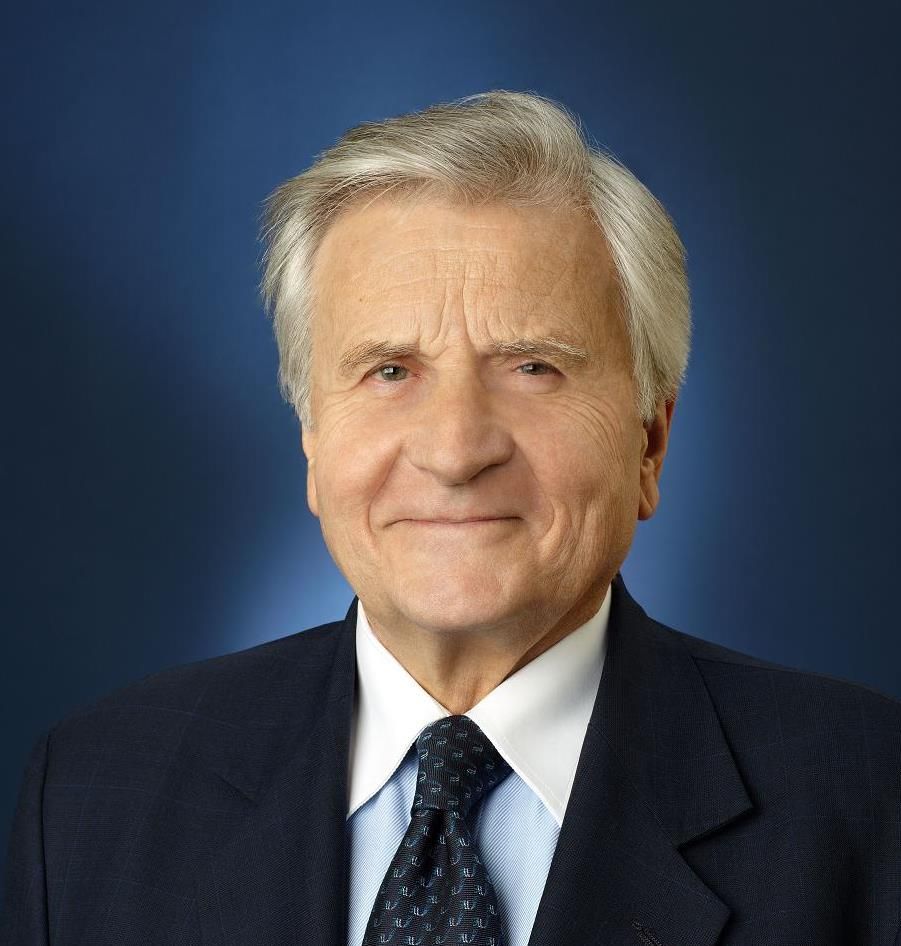
Jean-Claude Trichet
Panel Member
European Chairman, Trilateral Commission
Former President, European Central Bank
Honorary Governor of the Banque de France
Jean-Claude Trichet is presently European Chairman of the Trilateral Commission.
Jean-Claude Trichet is a member of the "Institut de France" (Académie des Sciences Morales et Politiques). He is honorary chairman of the Bruegel Institute (Brussels) and honorary chairman of the Group of Thirty (Washington). He was a member of the Eminent Persons Group on Global Financial Governance (EPG), set up in 2017 by the G20.
Jean-Claude Trichet was President of the European Central Bank (2003-2011). He was Governor of Banque de France (1993-2003) and Undersecretary of the French Treasury (1987-1993). He was President of the Paris Club (debt rescheduling) (1985-1993), President of the European Monetary Committee (1992-1993), President of the Group of 10 Central Banks Governors and President of the Global economy meeting in Basel (2002-2011). He was President of Sogepa (Société de Gestion des Participations Aéronautiques) (2012-2013) and Director of Airbus Group (2012-2018). He was named “Person of the Year” by the Financial Times in 2007 and n° 5 of the “World Most Powerful” in the Newsweek list (2008).
Born in Lyon in 1942, Jean-Claude Trichet is an honorary inspecteur général des Finances and ingénieur civil des Mines. He is a graduate of the Institut d’études politiques de Paris, of the Université de Paris (in economics) and of the École Nationale d’Administration. Jean-Claude Trichet has been awarded honorary doctorates by several universities.
Ngaire Woods
Panel Member
Dean, Blavatnik School of Government University of Oxford
Ngaire Woods
Panel Member
Dean, Blavatnik School of Government University of Oxford
Professor Ngaire Woods is the founding Dean of the Blavatnik School of Government and Professor of Global Economic Governance at Oxford University. Her research focuses on how to enhance the governance of organizations, the challenges of globalization, global development, and the role of international institutions and global economic governance. She founded the Global Economic Governance Programme at Oxford University and co-founded (with Robert O. Keohane) the Oxford-Princeton Global Leaders Fellowship programme. She led the creation of the Blavatnik School of Government.
Ngaire Woods serves as a member of the Asian Infrastructure Investment Bank’s International Advisory Panel and on the Boards of the Mo Ibra him Foundation and the Stephen A. Schwarzman Education Foundation. She is an Independent Non-Executive Director at Rio Tinto (effective September 2020). She sits on the advisory boards of the Centre for Global Development, the African Leadership Institute, the School of Management and Public Policy at Tsinghua University, and the Nelson Mandela School of Public Policy at Cape Town University. She is Chair of the Harvard University Visiting Committee on International Engagement and a member of the Department for International Trade’s Trade and Economy Panel. She is also an honorary governor of the Ditchley Foundation and is co-Chair of the World Economic Forum Global Future Council on Frontier Risks.
Previously, she served as a Non-Executive Director on the Arup Global Group Board and on the Board of the Center for International Governance Innovation. From 2016-2018, she was Co-Chair of the World Economic Forum’s Global Future Council on Values, Technology and Governance. She has also served as a member of the IMF European Regional Advisory Group, and as an Advisor to the IMF Board, to the Government of Oman’s Vision 2040, to the African Development Bank, to the UNDP’s Human Development Report, and to the Commonwealth Heads of Government.
Ngaire Woods has published extensively on international institutions, the global economy, globalization, and governance, including the following books: The Politics of Global Regulation (with Walter Mattli, Oxford University Press, 2009), Networks of Influence? Developing Countries in a Networked Global Order (with Leonardo Martinez-Diaz, Oxford University Press, 2009), The Globalizers: the IMF, the World Bank and their Borrowers (Cornell University Press, 2006), Exporting Good Governance: Temptations and Challenges in Canada’s Aid Program (with Jennifer Welsh, Laurier University Press, 2007), and Making Self-Regulation Effective in Developing Countries (with Dana Brown, Oxford University Press, 2007). She has previously published The Political Economy of Globalization (Macmillan , 2000), Inequality, Globalization and World Politics (with Andrew Hurrell: Oxford University Press, 1999), Explaining International Relations since 1945 (Oxford University Press, 1986). She has published numerous articles on international institutions, globalization, and governance. She has also presented numerous documentaries for BBC Radio 4 and BBC TV2.
She was educated at Auckland University (BA in economics, LLB Hons in law). She studied at Balliol College, Oxford as a New Zealand Rhodes Scholar, completing an MPhil (with Distinction) and then DPhil (in 1992) in International Relations. She won a Junior Research Fellowship at New College, Oxford (1990-1992) and subsequently taught at Harvard University (Government Department) before taking up her Fellowship at University College, Oxford and academic roles at Oxford University.
Ngaire Woods was appointed Commander of the Most Excellent Order of the British Empire (CBE) in the 2018 New Year's Honours for services to Higher Education and Public Policy. She is a Fellow of the Academy of Social Sciences and an International Honorary Member of the American Academy of Arts and Sciences.
Min Zhu
Panel Member
Head of National Financial Research Institute, Tsinghua University
Former Deputy Managing Director, IMF
Min Zhu
Panel Member
Head of National Financial Research Institute, Tsinghua University
Former Deputy Managing Director, IMF
Dr. Min Zhu is currently the Chairman of the National Institute of Financial Research at Tsinghua university, Vice Chairman of China Center for International Economic Exchanges, Sino-UK Professional and Financial Service Envoy for the Belt and Road Initiative. He is a member of the "14th Five-Year Plan" Expert Committee, a member of the Foreign Policy Advisory Committee of the Ministry of Foreign Affairs, and a member of the Expert Advisory Committee of the State Internet Information Office, a commissioner of Lancet Global COVID-19 Commission. He is also a Board Trustee of Fudan University, World Economic Forum, and Peterson Institute for International Economics. Dr. Zhu was a Deputy Managing Director at IMF from July 2011 to July 2016. Before that, Dr. Zhu was a Deputy Governor of the People’s Bank of China, and prior to his service at China’s Central Bank, he served as a Group Executive Vice President of the Bank of China. Dr. Zhu also worked at the World Bank and taught economics at both Johns Hopkins University and Fudan University.
Dr. Zhu received his Ph.D. and M.A. in economics from Johns Hopkins University, an M.P.A. from the Woodrow Wilson School of Public International Affairs at Princeton University, and a B.A. in economics from Fudan University. He was a Board Trustee of Princeton University and International Council Member of Booth School of Chicago University. Dr. Zhu was awarded Distinguish Alumnus of Fudan University and Johns Hopkins University. He was also awarded China Economic Leader in 2014, Global Influential Chinese in 2015, CFV-10 year Global Financial Leader in 2016, and China Scholar of the year in 2018. In 2019, D r. Zhu was shortlisted in the list of 40 returnees in the 40 years of China's reform and opening up and the list of 70 returnees in the 70 years since the founding of the People's Republic of China.
Masood Ahmed
Project Director & Panel Member
President, Center for Global Development
Masood Ahmed
Project Director & Panel Member
President, Center for Global Development
Masood Ahmed is president of the Center for Global Development. He joined the Center in January 2017, capping a 35-year career driving economic development policy initiatives relating to debt, aid effectiveness, trade, and global economic prospects at major international institutions including the IMF, World Bank, and DFID.
Ahmed joined CGD from the IMF, where he served for eight years as director, Middle East and Central Asia Department, earning praise from Managing Director Christine Lagarde as a “visionary leader.” In that role, he oversaw the Fund's operations in 32 countries and managed relationships with key national and regional policymakers and stakeholders. In previous years, he also served as the IMF's director of external relations, and deputy director of the Policy Development and Review Department.
From 2003-2006, Ahmed served as director-general, Policy, and International at the UK government department for International Development (DFID). In that role, he was responsible for advising UK ministers on development issues and overseeing the UK's relationship with international development institutions such as the World Bank.
Ahmed also worked at the World Bank from 1979-2000 in various managerial and economist positions, rising to become Vice President, Poverty Reduction and Economic Management. In that role, he led the HIPC (heavily indebted poor countries) debt relief initiative, which has to date brought relief from debt burdens to 36 of the world's poorest nations.
Born and raised in Pakistan, Ahmed moved to London in 1971 to study at the LSE where he obtained a BSc Honors as well as an MSc Econ with distinction. He is a UK national.
Ahmed is a leading expert on Middle East economics, having served on the Advisory Board of the LSEMiddle East Center, as well as on the World Economic Forum's Global Agenda Council on the Middle East and North Africa.
Guntram Wolff
Project Director & Panel Member
Director, Bruegel
Guntram Wolff
Project Director & Panel Member
Director, Bruegel
Guntram Wolff is the Director of Bruegel. His research focuses on the European economy and governance, fiscal and monetary policy, and global finance. He regularly testifies at the European Finance Ministers' ECOFIN meeting, the European Parliament, the German Parliament (Bundestag) and the French Parliament (Assemblée Nationale). From 2012-16, he was a member of the French prime minister's Conseil d'Analyse Economique. Guntram Wolff is also a member of the Solvay Brussels School's international advisory board of the Brussels Free University. He joined Bruegel from the European Commission, where he worked on the macroeconomics of the euro area and the reform of euro-area governance. Prior to joining the Commission, he was coordinating the research team on fiscal policy at Deutsche Bundesbank. He also worked as an adviser to the International Monetary Fund. He holds a Ph.D. from the University of Bonn, studied economics in Bonn, Toulouse, Pittsburgh, and Passau, and previously taught economics at the University of Pittsburgh and at Université libre de Bruxelles. He has published numerous papers in leading academic journals. Guntram is fluent in German, English, French and has good notions of Bulgarian and Spanish. His columns and policy work are published and cited in leading international media such as the Financial Times, the New York Times, Wall Street Journal, Caixin, Nikkei, El Pais, La Stampa, FAZ, Handelsblatt, Les Echos, BBC, ZDF, and others.
Victor J. Dzau
Panel Advisor, HLIP
President, National Academy of Medicine
Victor J. Dzau
Panel Advisor, HLIP
President, National Academy of Medicine
Victor J. Dzau is the President of the US National Academy of Medicine (NAM). In addition, he serves as Vice-Chair of the US National Research Council. He is Chancellor Emeritus and James B. Duke Professor of Medicine at Duke University and the past President and CEO of the Duke University Health System. Previously, Dr. Dzau was the Hersey Professor of Medicine and Chairman of Medicine at Harvard Medical School’s Brigham and Women’s Hospital, as well as Bloomfield Professor and Chairman of Medicine at Stanford University.
He is an internationally acclaimed leader and physician-scientist who has made a significant impact through his seminal research in cardiovascular medicine and genetics. His research laid the foundation for the development of the class of lifesaving drugs known as ACE inhibitors, used globally to treat high blood pressure and congestive heart failure. He pioneered gene therapy for vascular disease and was the first to introduce DNA decoy molecules to block transcription as gene therapy in humen. His pioneering research in cardiovascular regeneration led to the Paracrine Hypothesis of stem cell action and the therapeutic strategy of direct cardiac reprogramming.
In his role as a leader in health, Dr. Dzau has led efforts in innovation to improve health. 5 years ago, he led the reorganization of the Institute of Medicine (I OM ) into the new National Academy of Medicine. The NAM addresses health issues of critical importance; advances science and addresses medical, social, and ethical aspects of scientific advancements in health; and inspires the nation and the globe to coalesce around a shared priority and audacious goal to advance health. During his tenure, Dr. Dzau has designed and led important initiatives such as the Commission on a Global Health Risk Framework for the Future, Roadmap for Healthy Longevity, the International Human Gene Editing Initiative; Vital Directions for Health and Health Care; Confronting the Opioid Crisis and the Grand Challenge in Climate Change and Human Health.
Dr. Dzau is active in Global Health. He launched the Duke Institute of Global Health and Duke NUS Graduate School of Medicine Singapore, founded the Division of Global Health Equity at Harvard Brigham Women’s Hospital (headed by Paul Farmer) and chairs the International Advisory Board of McGill’s School of Population and Global Health (led by Tim Evans). He serves on the board of the Global Preparedness Monitoring Board (GPMB), is a Principal of the Global Access to COVID Tools Accelerator (ACT Accelerator), was on the board of Coalition of Epidemic Preparedness and Innovation (CEPI) and is on the board of the Institute of Health Metrics and Evaluation (IHME). He served on the Board of Health Governors of the World Economic Forum and chaired its Global Futures Council on Healthy Longevity and Human Enhancement. Dr. Dzau is co-chair of the Healthy Brain Global Initiative. He has launched important initiatives such as the Global Health Risk Framework (2016), the Global Health and the Future Role of the US (2017), Integrating Clinical Research into Epidemic Response: The Ebola Experience (2017); Crossing the Global Quality Chasm (2018) and the Global Grand Challenge in Healthy Longevity (2019). Three universities ( McGill, Harvard Brigham, and Duke) have established Global Health Lectureships in his name.
Dr. Dzau has served on the Advisory Committee to the NIH Director and as Chair of the NIH Cardiovascular Disease Advisory Committee. He chairs the Steering Committee of the NIH Progenitor Cell Translational Consortium. He serves on the board of Imperial College Health Partners of UK, Health and Biomedical Sciences Council of Singapore, Chairs International Science Advisory Committee of the Qatar Precision Medicine Institute, Chairs the Scientific Boards of the Peter Munk Cardiac Center of University of Toronto and Institute of Cardiovascular and Medical Sciences of University of Glasgow.
Among his many honors and recognitions are the Gustav Nylin Medal from the Swedish Royal College of Medicine, the Research Achievement Award from the American Heart Association, the Ellis Island Medal of Honor, the Poulzer Prize of the European Academy of Sciences and Arts and the Henry Freisen International Prize. He is a member of the National Academy of Medicine, American Academy of Arts and Sciences, Academia Sinica and European Academy of Sciences and Arts. He was made an Honorary Citizen of Singapore, the highest honor conferred to an individual. He has received 16 honorary doctorates.
Jeremy Farrar
Panel Advisor, HLIP
Director, Wellcome Trust
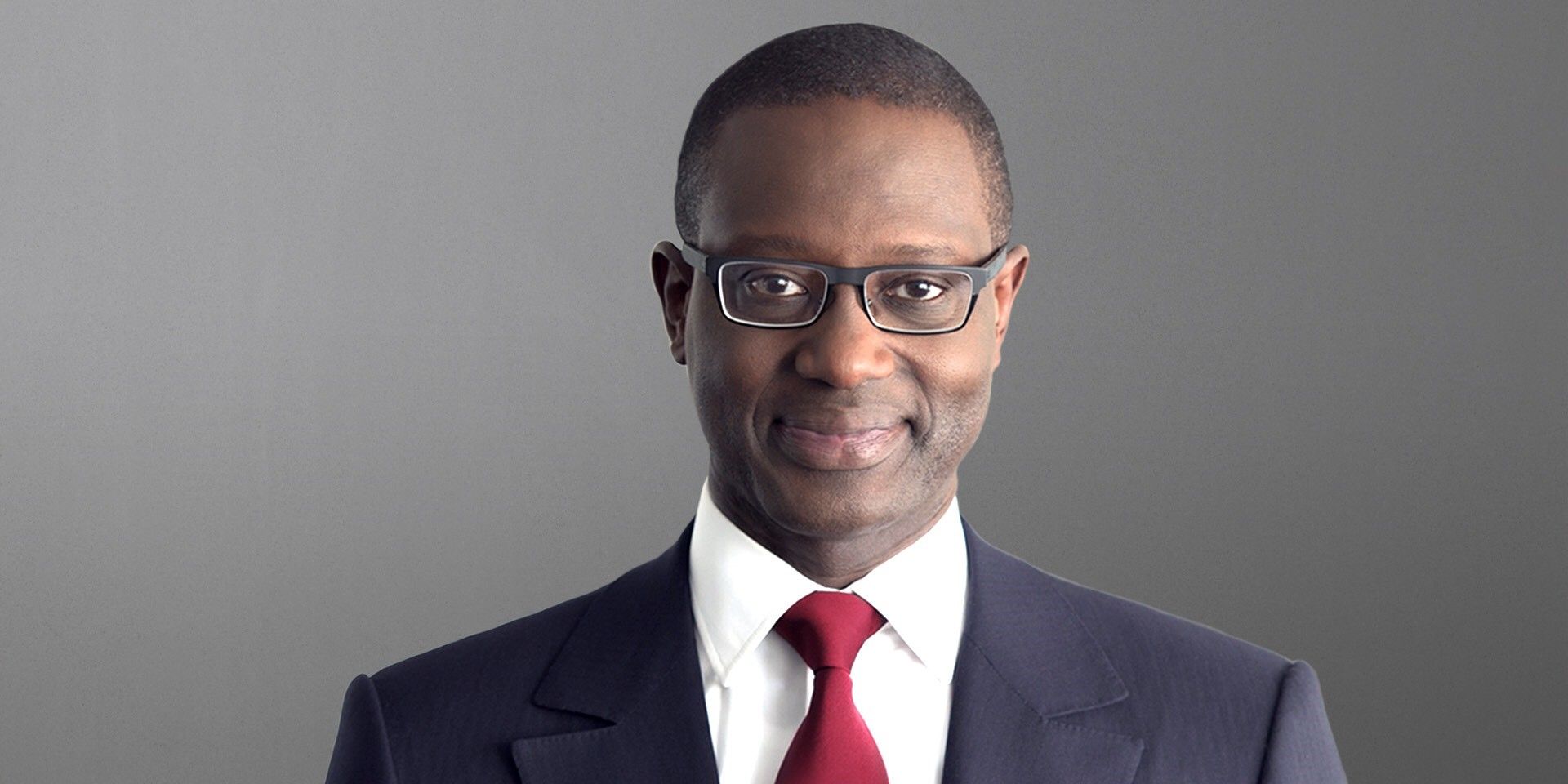
Tidjane Thiam
Panel Member
African Union Special Envoy on COVID-19
Former CEO, Credit Suisse and Prudential
Former Minister of Planning and Development, Cote d’Ivoire
Tidjane Thiam is the Chairman of Rwanda Finance Limited. He is also the Chairman of the Audit Committee of the Kering Group, a member of the International Olympic Committee and a Special Envoy on Covid 19 for the African Union. Before this, Mr. Thiam was Chief Executive of Credit Suisse from 2015 to 2020 and Group Chief Executive of Prudential plc from 2009 to 2015, after one year as Chief Financial Officer.
Between 2002 and 2008, Mr. Thiam held various leadership roles at Aviva after being a partner at the consulting firm McKinsey & Company. From 1994 to 1999, he was Chief Executive of the National Bureau for Technical Studies and Development and subsequently Secretary of Development and Planning for C ôte d’Ivoire. Mr. Thiam co-chaired the World Economic Forum 2016 in Davos and joined the Group of Thirty (G30), a select group of leaders in international finance, in 2015. He has been on the Board of Directors of 21st Century Fox from 2014 until 2019. He was named Chairman of the Board of the Association of British Insurers from 2012 to 2014.
In 2018, Mr. Thiam received the Euromoney Award for Excellence ‘Banker of the Year’.
He is a graduate from the École Polytechnique and the École Nationale Supérieure des Mines de Paris and holds an MBA with distinction from INSEAD.
Mr. Thiam is a Chevalier of the French Legion of Honour
Jean-Claude Trichet
Panel Member
European Chairman, Trilateral Commission
Former President, European Central Bank
Honorary Governor of the Banque de France

Mark Suzman
Panel Member
CEO, Bill and Melinda Gates Foundation
As CEO of the Bill & Melinda Gates Foundation, Mark Suzman leads the organization in service of our vision – to help every person have the opportunity to live a healthy, productive life. Knowing that we cannot achieve that vision alone, Mark brings a deep commitment to building partnerships and ensuring that the culture of foundation directly enables the impact we aspire to have.
Being raised in apartheid South Africa instilled in Mark a desire to use the advantages afforded to him to help tackle injustice and inequality. He began his career doing that through journalism, writing for the Johannesburg Star and then the Financial Times, where he covered international trade policy, welfare reform, and political issues, including the historic 1994 election of Nelson Mandela. In 2000, Mark joined the United Nations, where he was part of the effort to implement the Millennium Development Goals under the leadership of then Secretary-General Kofi Annan. He held multiple positions at the UN over his six-year tenure, including senior advisor for policy and strategic communications in the Office of the Secretary-General, and policy director in the Office of the Administrator of the United Nations Development Program.
Mark joined the foundation in 2007 as director of Global Development Policy, Advocacy, and Special Initiatives. Prior to becoming CEO, Mark served as managing director of Country Offices, president of Global Policy and Advocacy, and chief strategy officer. In these roles, he built and oversaw the development of the foundation’s offices in India, China, Africa, and E Europe, and managed the foundation’s relationships with government, private philanthropists, and civil society. He also implemented a new system for how the foundation measures impact and manages tradeoffs across its strategic priorities.
Mark holds a doctorate in international relations from Oxford University, where he was a Rhodes Scholar. He earned his bachelor's degree, summa cum laude, from Harvard University.
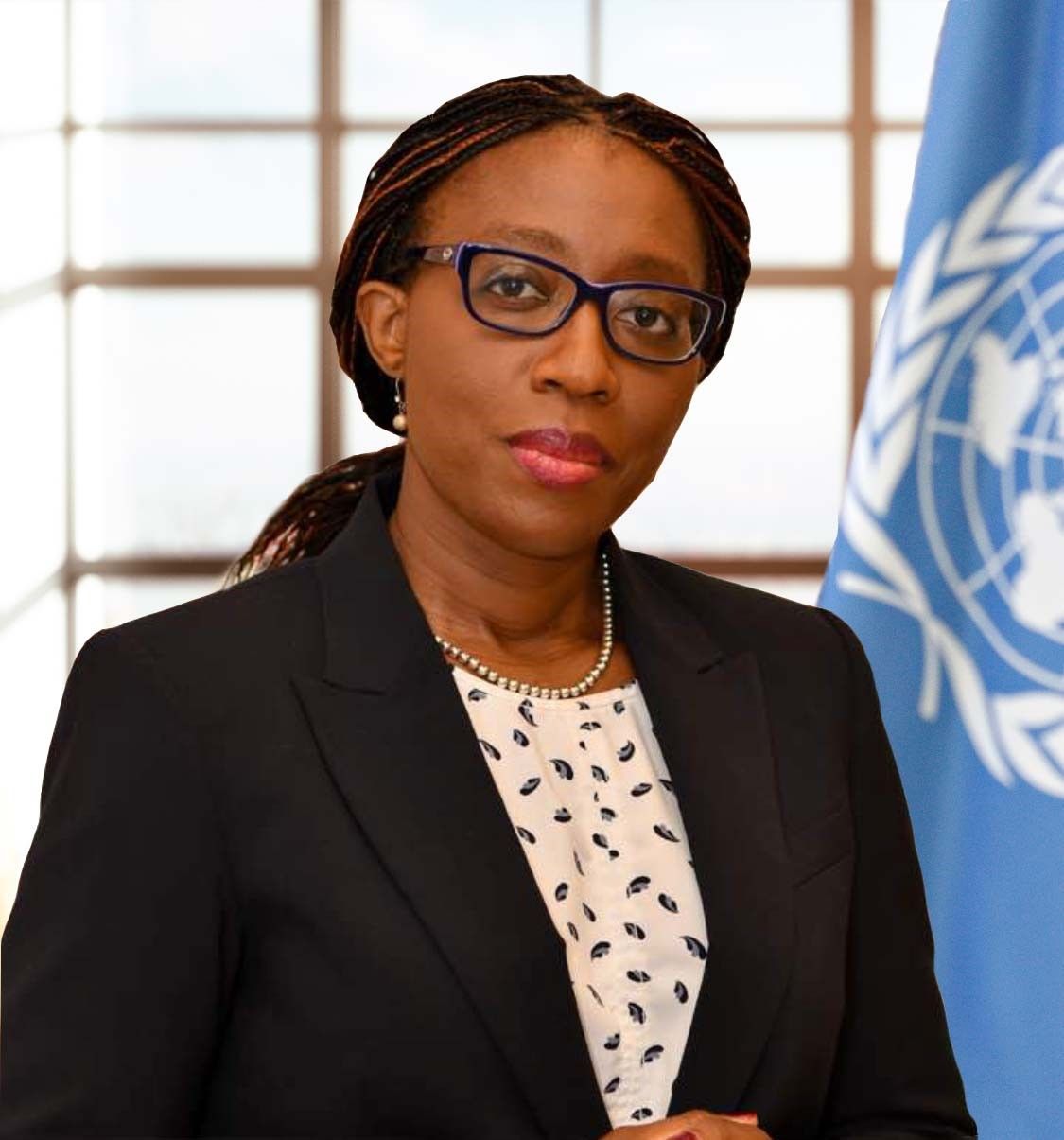
Vera Songwe
Panel Member
UN Under-Secretary General and Executive Secretary
UN Economic Commission for Africa
Vera Songwe is the Under-Secretary-General of the United Nations and Executive Secretary of the Economic Commission for Africa (ECA). Upon her appointment, she became the first woman to lead the institution in its 60-year history.
As Executive Secretary, Songwe’s reforms have focused on “ideas for a prosperous Africa”, and have brought to the fore critical issues of macroeconomic stability, development finance, private sector growth, poverty and inequality, digital transformation, trade and competitiveness.
She was recently listed as one of Africa’s 50 most powerful women by Forbes and named as one of the ‘100 Most Influential Afri cans’ by Jeune Afrique in 2019. In 2017, New African Magazine listed her as one of the ‘100 Most Influential Africans’ and the FT named her one of the ’25 African to watch’ in 2015. Songwe is acknowledged for her long-standing track record of providing policy advice and her wealth of experience in delivering development results for Africa. She has written extensively on the development and economic issues including debt, infrastructure development, fiscal and governance issues. She is well-published and contributes to the development debate across a broad spectrum of platforms including in the Financial Times.
Prior to ECA, she held a number of senior leadership roles with the International Finance Corporation and World Bank.
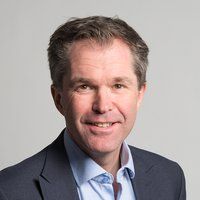
John-Arne Røttingen
Panel Member
Ambassador for Global Health, Ministry of Foreign Affairs, Norway
Founding Chief Executive Officer, Coalition for Epidemic Preparedness Innovations (CEPI)
Professor John-Arne Røttingen is Ambassador for Global Health at the Ministry of Foreign Affairs, Norway. He is Visiting Fellow of Practice at Blavatnik School of Government, Oxford University, and was the founding Chief Executive Officer of CEPI – Coalition for Epidemic Preparedness Innovations. He has been the Chief Executive of the Research Council of Norway; Executive Director of Infection Control and Environmental Health at the Norwegian Institute of Public Health; Professor of Health Policy at the Department of Health Management and Health Economics, Institute of Health and Society, University of Oslo; and Adjunct Professor at the Department of Global Health and Population, Harvard T.H. Chan School of Public Health. He has been the founding Chief Executive of the Norwegian Knowledge Centre for the Health Services; Oxford Scholar at Wadham College; Fulbright Fellow at Harvard Kennedy School; Chair of the Board of the Alliance for Health Policy and Systems Research; and Chair of the Consultative Expert Working Group on Research and Development: Financing and Coordination (CEWG), WHO. He received his MD and Ph.D. from the University of Oslo, an MSc from Oxford University and an MPA from Harvard University.
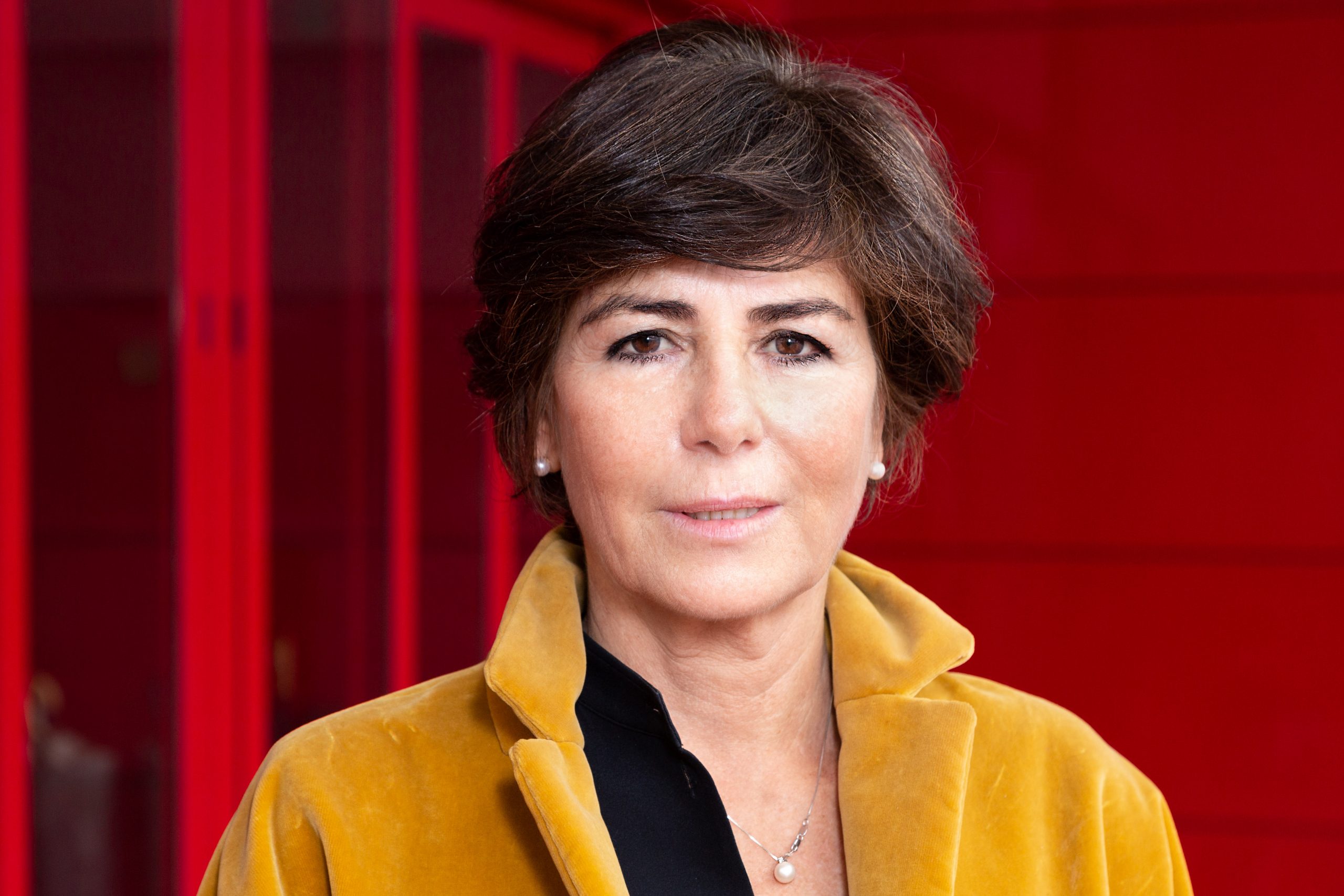
Lucrezia Reichlin
Panel Member
Professor of Economics, London Business School Chairman &
Co-Founder, Now-Casting Economics Former Director General of Research, European Central Bank
Lucrezia Reichlin is Professor of Economics at the London Business School, Chair of European Corporate Governance Institute, a Trustee of the International Financial Reporting Standards Foundation and of the Center of Economic Policy Research, and non-executive director of AGEAS Insurance Group. In 2011 she co-founded Now-Casting Economics Ltd of which she was Chairman. She is a columnist for the Italian national daily Il Corriere della Sera and a regular contributor to Project Syndicate. She h eld the 2018/2019 European Chair at the Collè ge de France in Paris.
Reichlin has held several academic positions and she is the scientific advisor of several research and policy institutions around the world. From 2005 to 2008 she served as Director-General of Research at the European Central Bank. S he was non-executive director of UniCredit Banking Group from 2009 to 2018 and of Eurobank Ergasias SA from 2016 to 2018.
Reichlin is a Fellow (elected) of the Econometric Society, the British Academy and Academia Europaea as well as a Fellow of the European Economic Association. Reichlin received the Birgit Grodal prize for significant contributions in economics (2016) and the Isaac Kerstenetzky Scholarly Achievement Award (2016)
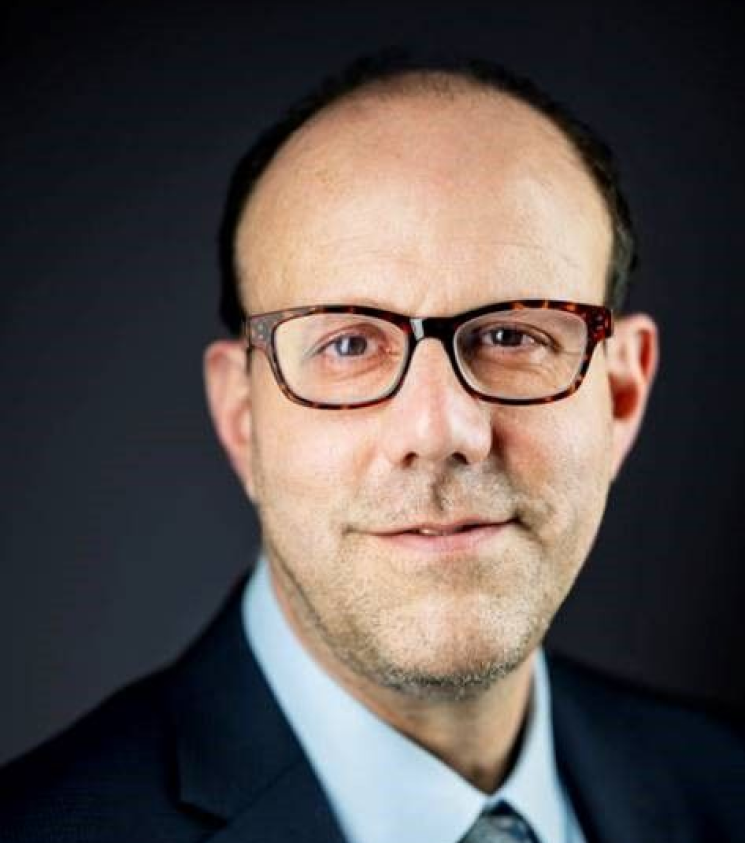
Michael Kremer
Panel Member
University Professor and Director,
Development Innovation Lab, The University of Chicago
2019 Nobel Laureate
Michael Kremer is Director of the Development Innovation Lab at the University of Chicago, where he is a University Professor in Economics in the College and the Harris School of Public Policy. He is the joint winner of Sveriges Riksbank Prize in Economic Sciences in Memory of Alfred Nobel (Economics Nobel Prize) 2019, for an “experimental approach to alleviating global poverty”.
Kremer’s work focuses on innovation, including in education, health, water, finance and agriculture in developing countries; he has also done work in the application of behavioral economics, and political economy to development economics issues. He has written multiple papers on incentives around innovation, including on patent buy-outs, Advance Market Commitments, and approaches to funding social innovation.
An innovator and social entrepreneur, Kremer remains active in translating his academic work into program s that have impacted millions of lives around the world. His work on Advance Market Commitments for vaccines was instrumental in the development of a new pneumococcal vaccine, tackling a leading cause of infant morbidity and mortality. The vaccine has now been rolled out in 60 developing countries. Drawing on his work on school-based deworming, he co-founded Deworm the World. As part of Evidence Action, it now brings deworming to over 150 million children annually. His work on safe drinking water led to the Dispensers for Safe Water Program, which reaches 4 million people via the NGO Evidence Action. He is a co-founder and board member of Precision Agriculture for Development, which leverages digital technology to improve productivity and incomes for small-holder farmers in developing countries. He founded WorldTeach, which placed more than 7,500 volunteers as teachers in developing countries from 1987 to 2019.
Kremer is a co-founder and serves as Scientific Director of USAID's Development Innovation Ventures (DIV), an open, tiered, evidence-based fund that supports innovation for development.
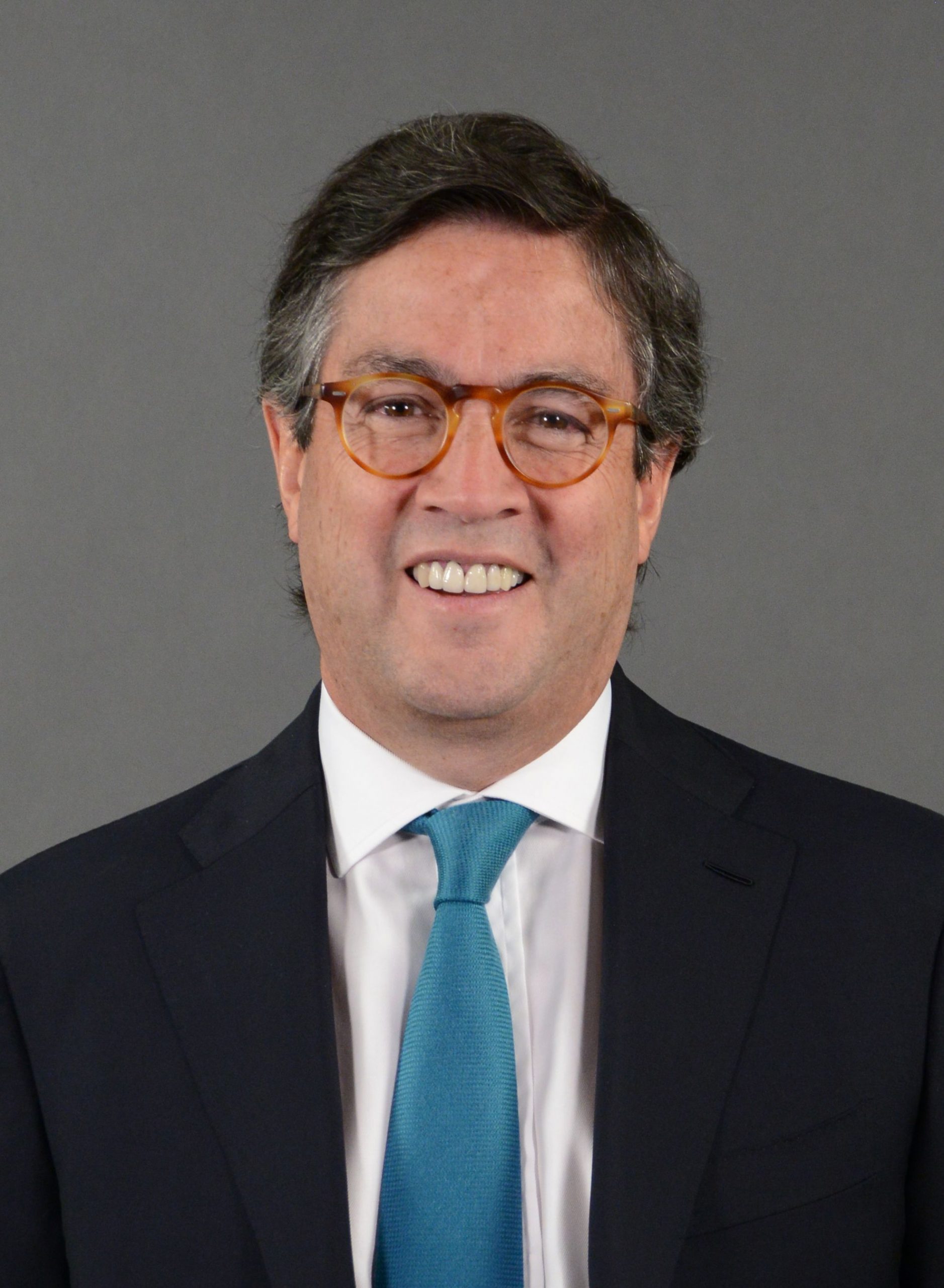
Luis Alberto Moreno
Panel Member
Former President, Inter-American Development Bank
Former Minister of Economic Development, Colombia
Mr. Moreno recently concluded his 15-year tenure as the President of the Inter-American Development Bank Group. There he led a profound transformation of the organization while also chairing the Board of Executive Directors of IDB Invest. He served as Colombia’s Ambassador to the United States for seven years. Leading to unprecedented bipartisan and bilateral assistance programs that supported the radical improvement of security and economic conditions, primarily through the approval of Plan Colombia – an ambitious program to fight drug trafficking and promote social and economic recovery. Mr. Moreno had a distinguished career in business and government. As Minister of Economic Development, and was head of the Instituto de Fomento Industrial, Colombia’s public sector holding company. In the private sector, he was the executive producer of TV Hoy, an award-winning broadcast news program, and a strategic advisor to major Colombian companies and foreign investors. Mr. Moreno holds a degree in business administration and economics from Florida Atlantic University and an MBA from the Thunderbird School of Global Management. In 1990 Harvard University awarded him a Neiman Fellowship for his achievements in the field of journalism. A frequent contributor of opinion articles in international and regional media regularly participates as a speaker in public conferences and private forums on development issues. He is a Member of the Board of Trustees of the World Economic Forum and of the Inter-national Olympic Committee.
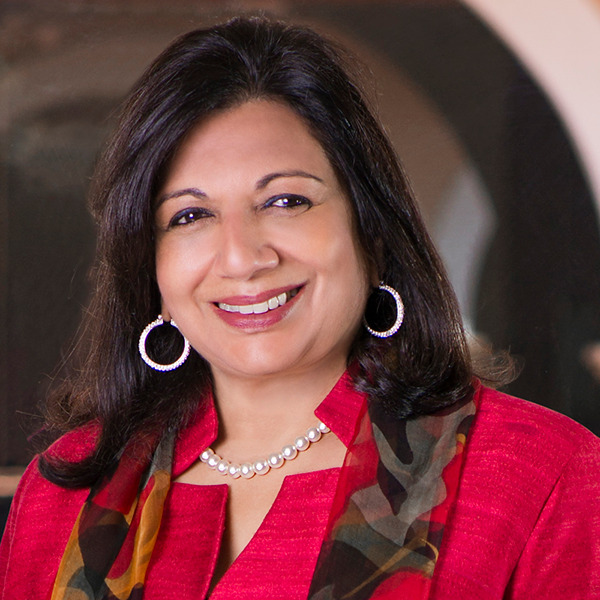
Kiran Mazumdar-Shaw
Panel Member
Founder and Chairperson, Biocon
Founder and Managing Trustee, Biocon Foundation
Chairperson, Mazumdar-Shaw Medical Foundation
Ms Kiran Mazumdar-Shaw is a pioneering biotech entrepreneur, a healthcare visionary, a global influencer and a passionate philanthropist. She is a pioneer of India’s biotech industry and founder of Biocon.
Ms. Mazumdar-Shaw is the proud recipient of two of India's highest civilian honours, the Padma Shri (1989) and the Padma Bhushan (2005). She was also honoured with the Order of Australia, Australia’s Highest Civilian Honour in January 2020. In 2016, she was conferred with the highest French distinction-Knight of the Legion of Honour.
She has been named as the winner of EY World Entrepreneur of the Year™ 2020 Award, which is a testimony to her entrepreneurial journey of over four decades. She has been ranked as one of the world’s top 20 inspirational leaders in the field of biopharmaceuticals by The Medicine Maker Power List 2020.
She holds key positions in various industry, educational, government and professional bodies globally. She has recently been appointed as the Vice-Chair of the Global Board of Directors of U.S.-India Business Council and has been serving as a member of the Advisory Council of the UK-India Business Council. She has been elected as a full-term member of the Board of Trustees of The Massachusetts Institute of Technology (MIT), USA and has been serving as a member of the prestigious USA based National Academy of Engineering (NAE).
She also serves on the Board of Infosys Ltd, Narayana Hrudayalaya Ltd and PureTech Health PLC.
Ms Mazumdar-Shaw holds a bachelor’s degree in science (Zoology Hons.) from Bangalore University and has earned a master’s degree in malting and brewing from Ballarat College, Melbourne University. She has been awarded with several honorary degrees from the Universities of repute globally.
Ms Mazumdar-Shaw believes in compassionate capitalism and is the first woman business leader from India to sign the Giving Pledge, an initiative of the Gates Foundation, committing to give the majority of her wealth to philanthropic causes.
She is very passionate about innovation and mentors many science-based start-ups.
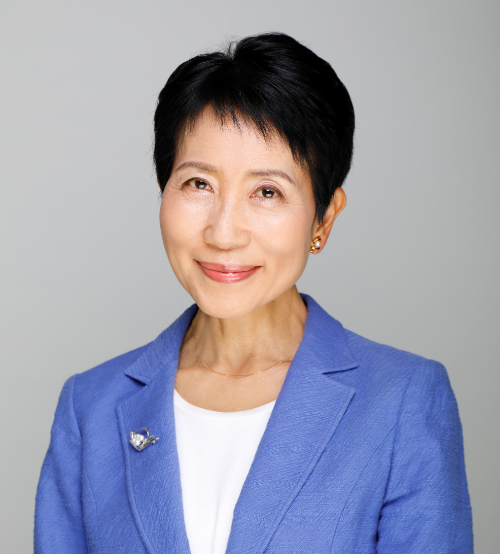
Naoko Ishii
Panel Member
Executive Vice President and Director, Center for Global Commons,
Professor, Institute for Future Initiatives, University of Tokyo
Former CEO and Chairperson, Global Environment Facility
Former Deputy Vice Minister of Finance, Japan
Dr. Naoko Ishii has joined University of Tokyo on August 1st 2020 as a professor, executive vice president, and inaugurating Director for Center for Global Commons, whose mission is to catalyze systems change so that human can achieve sustainable development within planetary boundaries. The Center aims at playing a much more active role in mobilizing movements of multi-stakeholders towards a shared goal of nurturing stewardship of Global Commons.
Prior to joining the university, she served the GEF (Global Environment Facility) as CEO and Chairperson from 2012 to 2020. S he formed GEF’s first mid-term strategy, GEF 2020, with a strong focus on the transformation of key economic systems.
She entered the Ministry of Finance, Japan, in 1981 and served as Deputy Vice Minister of Finance, Japan for 2010-2012. She also worked at the IMF and the World Bank.
She obtained BA in economics and Ph.D. in international studies, both from the University of Tokyo.
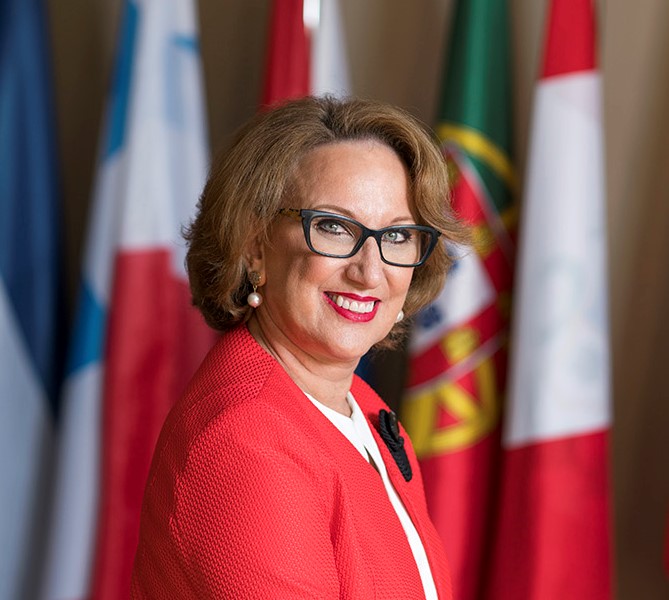
Rebeca Grynspan
Panel Member
Secretary General, Ibero-American General Secretariat
Former UN Under-Secretary General and Associate Administrator, UNDP
Former Vice-President of Costa Rica
Rebeca Grynspan, Ibero-American Secretary-General Rebeca Grynspan was born in San José, Costa Rica. She was unanimously elected as Ibero-American Secretary-General at the Extraordinary Meeting of Ministers of Foreign Affairs held in Ciudad de Mexico, on 24th February 2014. She took office on 1st April 2014 and in 2018 her mandate was renewed for a further four-year term.
In 2010 she was named Under-Secretary-General of the United Nations (UN) and Associate Administrator of the United Nations Development Program (UNDP). From 2006 to 2010, she was UNDP Regional Director for Latin America and the Caribbean.
Prior to joining the United Nations, Ms. Grynspan served as Vice-President of Costa Rica from 1994 to 1998. She was also Minister of Housing, Minister Coordinator of Economic and Social Affairs, and Deputy Minister of Finance. In addition, she has been a member of the High-Level Panel on Financing for Development, convened by former UN Secretary-General Kofi Annan in 2001.
She is a renowned advocate of human development, who has helped to focus the world's attention, and also that of Latin America, on relevant issues such as the reduction of inequality and poverty, gender equality, South-South cooperation as a tool for development, and the achievement of the Sustainable Development Goals (SDGs), among others.
She was also a delegate to the United Nations Commission for the Reconstruction of Haiti, a group consisting of the Haitian government, the former President of the United States Bill Clinton, and other prominent international partners.
In June 2014 she was appointed as chair of the Board of Trustees of the International Institute for Environment and Development (IIED), one of the most influential organisations worldwide in the field of policy research, devoted to the study of the interface between development and the environment.
Ms. Grynspan is a member of the steering committee of the UNICEF Scaling Up Nutrition (SUN) Movement; member of the Governing Council of the Society for International Development (SID), a global network of individuals and professionals at the forefront of development; member of the ILO Global Commission on the Future of Work; member of the Advisory Board of the Expansión International Economic Forum 2021 and is member of the G20 High Level Independent Panel (HLIP) on Financing the Global Commons for Pandemic Preparedness and Response, among others.
In addition to her experience as a conference lecturer and advisor to a number of international organisations and institutions, she has been actively involved in key United Nations initiatives, such as the Millennium Project's Task Force on Poverty and Economic Development and the High-level Panel on Financing for Development.
In 2014 and 2015, she was recognized as one of the 50 leading intellectuals of Latin America. Since 2016 she serves as a member of the Board of Trustees of the Complutense Institute for International Studies (ICEI), which forms part of the Universidad Complutense, Madrid. In 2017 she received the Forbes Award for Excellence and the Spanish government awarded her the Gran Cruz de la Orden Civil de Alfonso X El Sabio and in 2020 received the Aquí Europa-Vocento award as a Latin American personality which has done the most for the EU-Latin America construction.
Forbes magazine has chosen her in 2017, 2018, 2019, and 2020 as one of the 100 most powerful women in Central America.
In 2020 she received the Gumersindo de Azcarate Award and the Woman of the Year Award from the Women in a Legal World Association.
Ms. Grynspan holds a degree in Economics by the University of Costa Rica and an MSc in Economics by the University of Sussex. She has been awarded a Doctorate Honoris Causa by the University of Salamanca, the University of Extremadura and the European University of Madrid in recognition of her professional career.
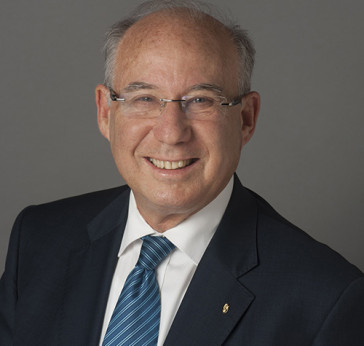
Jacob Frenkel
Panel Member
Chairman, Board of Trustees, Group of Thirty (G30)
Former Chairman, JPMorgan Chase International
Former Governor, Bank of Israel
Former Economic Counsellor, IMF
Dr. Jacob A. Frenkel is Chairman of the Board of Trustees of the Group of Thirty (G-30) which is a private, nonprofit, Consultative Group on International Economic and Monetary Affairs.
Dr. Frenkel served as Chairman of JPMorgan Chase International from 2009 to 2020 and is currently serving as a Senior Advisor to JPMorgan Chase. From 2001 to 2011 he served as Chairman and CEO of the G-30, from 2004 to 2009 as Vice Chairman of American International Group, Inc., and from 2000 to 2004 as Chairman of Merrill Lynch International. Between 1991 and 2000 he served two terms as the Governor of the Bank of Israel. He is credited with reducing inflation in Israel and achieving price stability, liberalizing Israel’s financial markets, removing foreign exchange controls, and integrating the Israeli economy into the global financial system.
Between 1987 and 1991, he was the Economic Counselor and Director of Research at the International Monetary Fund, and between 1973 and 1987 he was on the faculty of the University of Chicago where he held the position of the David Rockefeller Professor of International Economics and served as Editor of the Journal of Political Economy.
He is a Fellow of the Econometric Society, a lifetime Fellow of the International Economic Association, a Foreign Honorary Member of the American Academy of Arts and Sciences, Chairman of the Global Advisory Board of Value Base, a member of the Board of Directors of the National Bureau of Economic Research, of the Institute for National Security Studies (INSS), of the Japan Society, and of the Peterson Institute for International Economics, a member of the Competitive Markets Advisory Council (CMAC) of the CME Group, a member of the Boards of the Aspen Institute Italia and The Council for the US and Italy, a member emeritus of Temasek International Panel (TIP), a Senior Advisor of Temasek International Advisors, a member of the G20 Eminent Persons Group on Global Financial Governance, a member of the International Advisory Council of China Development Bank, and a Global Member of the Trilateral Commission.
Dr. Frenkel is a Laureate of the 2002 Israel Prize in Economics, a recipient of the Scopus Award from the Hebrew University, the Hugo Ramniceanu Prize for Economics from the Tel-Aviv University, the Czech Republic’s Karel Englis Prize in Economics, the “Order de Mayo al Merito” (in the rank of Gran Cruz) decoration from the Government of Argentina, the “Order of Merit” (in the rank of Cavaliere di Gran Croce) decoration from the Republic of Italy, and the YIVO Lifetime Achievement Award. He is also a recipient of several Honorary Doctoral degrees and other decorations and awards, including the “1993 Economic Policy Award” by “Emerging Markets” and the “1997 Central Banker of the Year Award” by “Euromoney”.
Dr. Frenkel serves as Chairman of the Board of Governors of Tel Aviv University, where he is also Chairman of the Frenkel-Zuckerman Institute for Global Economics. He previously served as Chairman of the Board of Governors of the Inter-American Development Bank (1995-1996), as Vice Chairman of the Board of Governors of the European Bank for Reconstruction and Development (1999-2000), as Governor of the IMF and Alternate Governor of the World Bank for Israel (1991-2000), a member of the Economic Advisory Panel of the Federal Reserve Bank of New York (1986-2014), and a member of the Board of Trustees of the New York Economic Club (2013-2019).
Dr. Frenkel is the author of numerous books and articles in the fields of International Economics and Macro-Economics. Dr. Frenkel holds a B.A. in economics and political science from the Hebrew University of Jerusalem, and an M.A. and Ph.D. in economics from the University of Chicago.
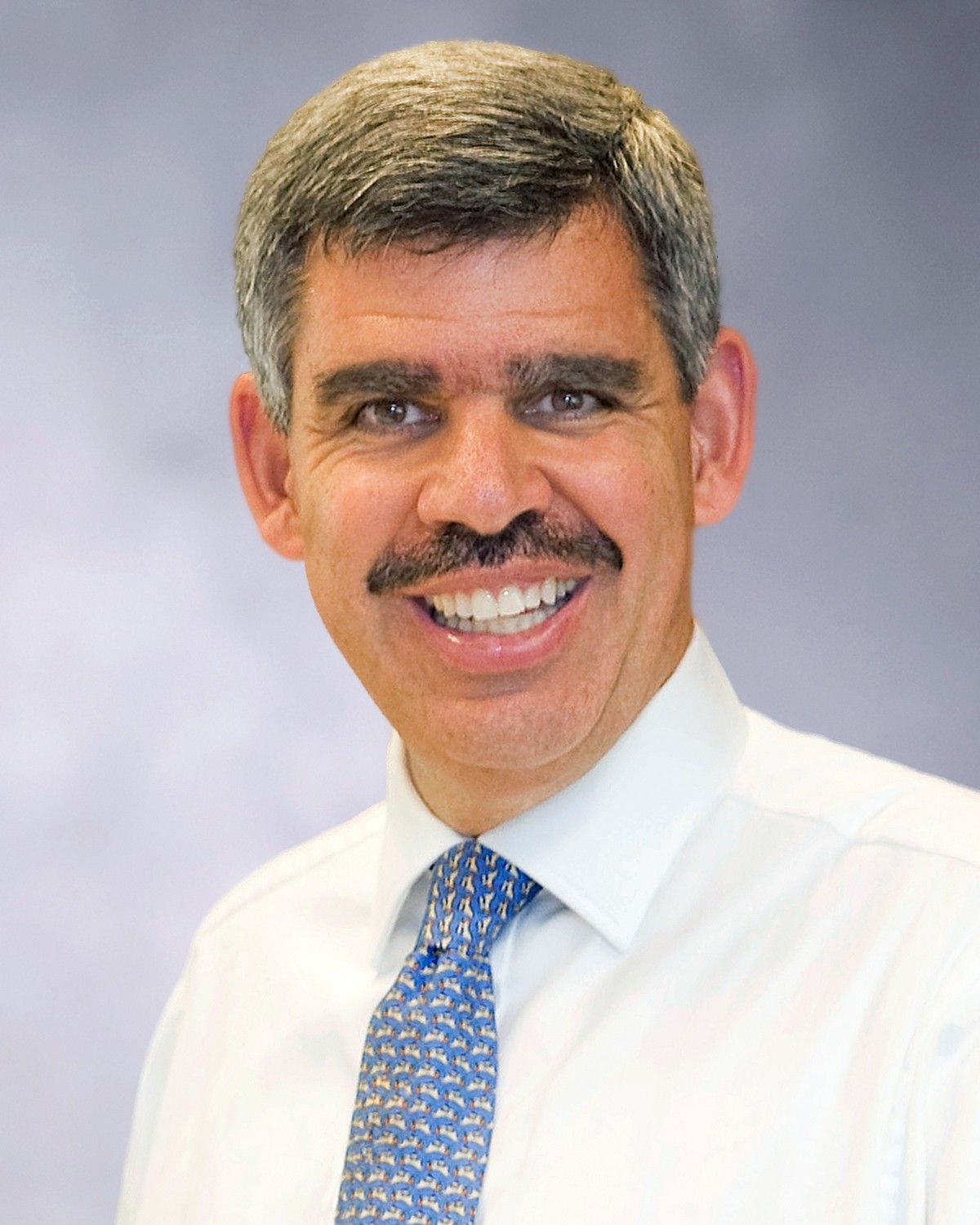
Mohamed A. El-Erian
Panel Member
Chief Economic Adviser, Allianz
President, Queens’ College, Cambridge University
Mohamed A. El - Erian is the President of Queens’ College, Cambridge, also serving as Chief Economic Advisor at Allianz, Chair of Gramercy Fund Management and Professor of Practice at The Wharton School. He formerly served as chief executive and co-chief investment officer of PIMCO (2007 - 14). A columnist for Bloomberg Opinion and a contributing editor at the Financial Times, he is a member of the boards of Barclays, UnderArmour and several non - profits. From December 2012 to January 2017, Dr. El - Erian chaired President Obama’s Global Development Council. Prior to PIMCO, he was an international civil servant at the IMF in Washington DC for 15 years and, for two years, president and CEO of Harvard Management Company, the entity that manages Harvard’s endowment.
He was named to Foreign Policy’s list of “Top 100 Global Thinkers” for four years in a row and has published widely on international economic and finance topics. His 2008 book, "When Markets Collide," was a New York Times and Wall Street Journal bestseller, won the Financial Times/Goldman Sachs Business Book of the Year and was named a book of the year by The Economist and one of the best business books of all time by the Independent (UK). His 2016 book, "The Only Game in Town: Central Banks, Instability and Avoiding the Next Collapse," was also a New York Times bestseller, was listed by Inc. as one of the "25 of the Most Inspiring Books Everyone Should Read."
He holds a master's degree and doctorate in economics from Oxford University and received his undergraduate degree in Economics from Cambridge University. His recent article may be found on www.mohamedel-erian.com.
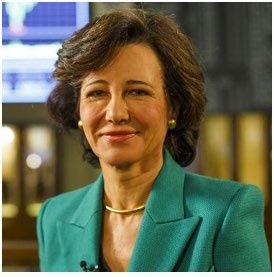
Ana Botín
Panel Member
Executive Chairman, Santander Group
Ana Botín was appointed Executive Chairman of Banco Santander in September 2014. Today, Santander is one of the most profitable and efficient banks among its peers in the world, serving over 147 million individual customers and companies across Europe,North America and South America. During the COVID crisis, Santander has been lending an average of more than a € 1bn per day to support businesses, while helping more than6million customers through the provision of loan moratoria and other measures.
Under Ana’s leadership, Santander is undergoing an ambitious digital transformation: its digital banking franchise, Open bank is already the largest digital bank in Europe by assets, and Santander has leveraged its scale and technology leadership in payments to create PagoNxt.
Meanwhile, Santander is supporting the transition to the green economy, being one of the largest lenders to renewable energy in the world, and is a supporter of the UN’s Collective Commitment on Climate Action.
Ana began her career at JPMorgan in New York. In 1988 she joined Santander to lead the Group’s expansion in Latin America. In 2002, she became Chief Executive of Banesto in Spain, before becoming CEO of Santander UK in 2010. Ms Botín is a Board member of theCoca-Cola Company and a member of the MIT CEO Advisory Board. She is also the founder and Chair of both Fundación CyD, which supports Spanish universities’ contribution to economic and social development, and Empieza por Educar, the Spanish affiliate of Teach for All, that trains talented graduates to become teachers.
Ana Botín earned her BA in Economics from Bryn Mawr College and is married with three sons.
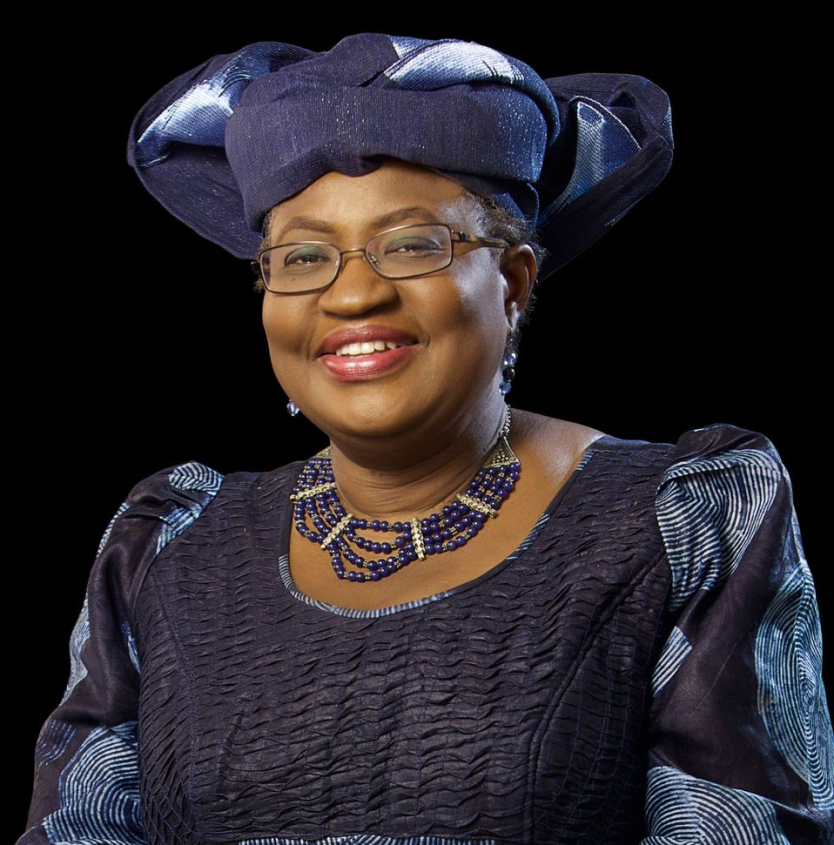
Ngozi Okonjo-Iweala
Panel Co-Chair
Former Finance and Foreign Minister, Nigeria
Director-General, World Trade Organization (WTO)
Former MD, World Bank
Former Chair, GAVI The Vaccine Alliance
Special Envoy of the African Union to Mobilise International Economic Support for Continental Fight Against COVID-19
Dr. Ngozi Okonjo-Iweala is an economist and international development expert with over 30 years of experience. She is Co-Chair of The Global Commission on the Economy and Climate. She also sits on the Boards of Standard Chartered PLC and Twitter Inc. She was Chair of the Board of Gavi, the Vaccine Alliance (2016 – 2020) and of the African Risk Capacity, ARC (2014 – 2020). Previously, she served as Senior Advisor at Lazard from September 2015 – October 2019. Dr. Okonjo-Iweala was recently appointed as AU COVID-19 Special Envoy (Finance) and WHO COVID-19 Special Envoy (ACT-Accelerator ). She is the Director General-designate of the World Trade Organisation (WTO). Dr. Okonjo-Iweala served twice as Nigeria’s Finance Minister, from 2003-2006, 2011-2015, and briefly as Foreign Minister, the first woman to hold both positions. She spent a 25-year career at the World Bank as a development economist working on economic development programs and policy reforms including trade policy in middle and low-income countries. She rose to the No.2 position of Managing Director at the World Bank, overseeing an $81 billion operational portfolio in Africa, South Asia, Europe and Central Asia. Dr. Okonjo-Iweala was named Forbes African of the Year (2020), Minister of the Decade, People’s Choice Award (2020) by Nigeria’s This Day newspaper. She also received the International Service Award of the World Affairs Councils of America (2020) as well as the Aminu Kano Award for Leadership (2020). In 2019, she was named one of Transparency International’s 8 Female Anti-Corruption Fighters Who Inspire. She has been ranked by Fortune as one of the 50 Greatest World Leaders in 2015, by Forbes as one of the Top 100 Most Powerful Women in the World consecutively for four years, by Time as one of the Top 100 Most Influential People in the World in 2014, and by the UK Guardian as one of the Top 100 Women in the World in 2011. Dr. Okonjo-Iweala holds a Bachelor’s in Economics from Harvard University and a PhD in Regional Economics and Development from the Massachusetts Institute of Technology. She is an n Angelopoulos Global Public Leader at Harvard University Kennedy School, a Fellow of the American Academy of Arts and Sciences and has received sixteen honorary degrees, including from Yale University, the University of Pennsylvania, Brown University, Tel Aviv University and Trinity College, Dublin. She is the author of numerous articles on finance and development, and several books including Women and Leadership-Real Lives, Real Lessons co-authored with Julia Gillard (Penguin Random House, 2020) Fighting Corruption is Dangerous: The Story Behind the Headlines (MIT Press, 2018) and Reforming the Unreformable: Lessons from Nigeria (MIT Press, 2012 ), The Debt Trap in Nigeria co-ed with Charles Soludo and Mansour Muhtar (Africa World Press, 2003).
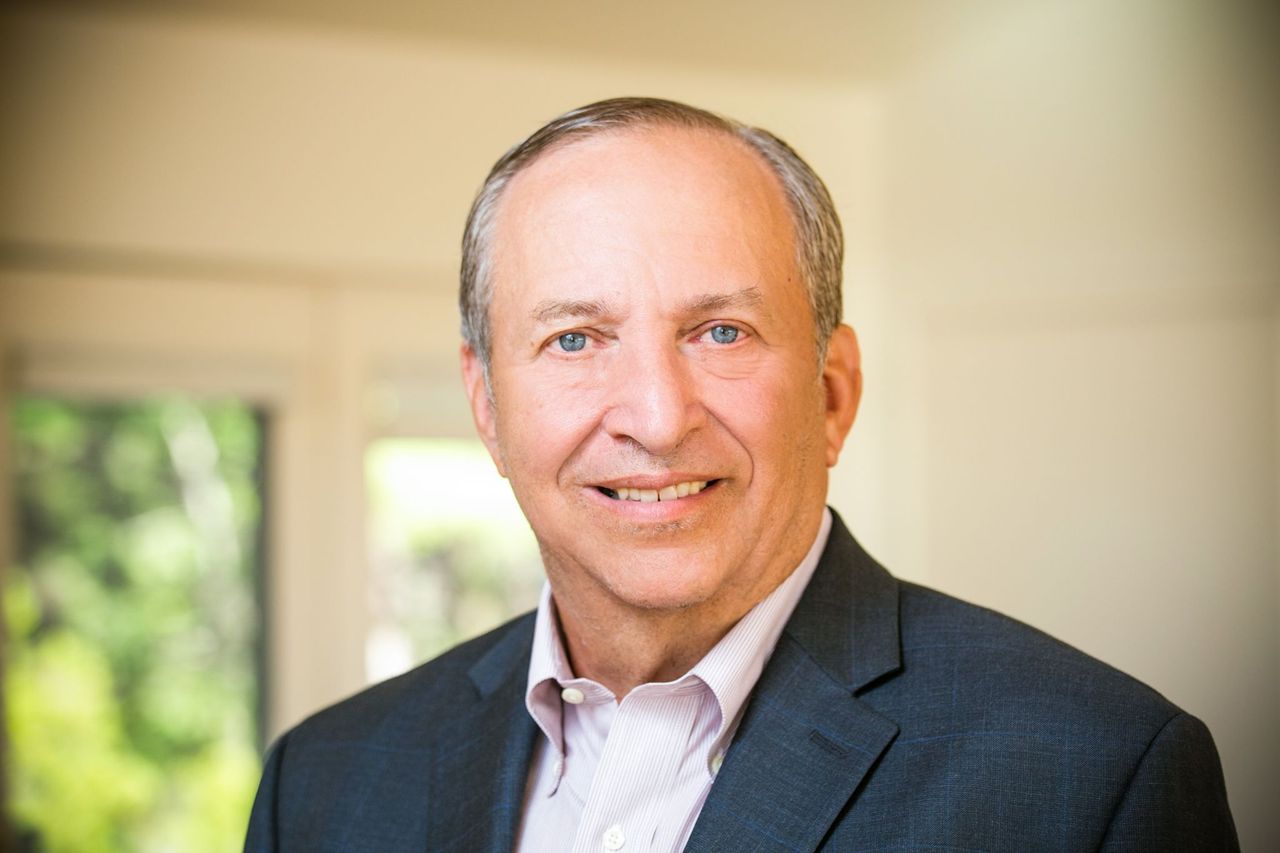
Lawrence Summers
Panel Co-Chair
Charles W. Eliot University Professor Harvard Kennedy School,
Former United States Treasury Secretary
Former Treasury Secretary Lawrence H. Summers is one of America’s leading economists. In addition to serving as 71st Secretary of the Treasury in the Clinton Administration, Dr. Summers served as Director of the White House National Economic Council in the Obama Administration, as President of Harvard University, and as the Chief Economist of the World Bank. Dr. Summers’ tenure at the U.S. Treasury coincided with the longest period of sustained economic growth in U.S. history. He is the only Treasury Secretary in the last half-century to have left office with the national budget in surplus. Dr. Summers has played a key role in addressing every major financial crisis for the last two decades. During the 1990s, he was a leader in crafting the U.S. response to international financial crises arising in Mexico, Brazil, Russia, Japan, and Asian emerging markets. As one of President Obama’s chief economic advisors, Dr. Summers’ thinking helped shape the U.S. response to the 2008 financial crisis, to the failure of the automobile industry, and to the pressures on the European monetary system. Upon Summers’ departure from the White House, President Obama said, “I will always be grateful that at a time of great peril for our country, a man of Larry’s brilliance, experience and judgment was willing to answer the call and lead our economic team.” The Economist recognized his influence when it defined the “Summers Doctrine,” an approach to economic policy during financial crises that fuses a microeconomic “laissez-faire” mentality with macroeconomic activism. “Markets should allocate capital, labour and ideas without interference, but sometimes markets go haywire, and must be counteracted forcefully by government.” Summers’ five years as President of Harvard represented a time of major innovation for the University. He focused on equality of opportunity and removing all financial obligation from students with family incomes below $60,000 a year. He launched a major effort to make Boston, and Cambridge in particular, the global leader in life sciences research, with the formation of major programs for stem cell research and genomics. Perhaps most importantly, he led efforts to renew Harvard College with dramatic increases in study abroad programs, faculty-student contact, and collaboration across the University during his tenure. Currently, Dr. Summers is the President Emeritus and the Charles W. Eliot University Professor at Harvard University, where he became a full professor at age 28, one of the youngest in Harvard’s recent history. He directs the University’s Mossavar - Rahmani Center for Business and Government. Summers was the first social scientist to receive the National Science Foundation n’s Alan Waterman Award for scientific achievement and, in 1993, he was awarded the John Bates Clark Medal, given to the most outstanding economist under 40 in the United States. He was elected to the National Academy of Sciences in 2002. He has published more than 150 papers in scholarly journals. Summers is an advisor to businesses and investors. He serves on the board of Square and Premise. He chairs the board of the Center for Global Development and serves on the board of ONE. He is an advisor to The Hamilton Project, The Hutchins Center on Fiscal & Monetary Policy and the Peterson Institute for International Economics. He is a distinguished senior fellow at the Center for American Progress and recently co-chaired the Commission on Inclusive Prosperity. He recently launched a Task Force on Fiscal Policy with Mayor Bloomberg and chaired the Commission on Global Health, lauded by the UN Secretary-General who noted that it “will bring more than health – it will bring equity, and contribute to a life of dignity for all.” President Bill Clinton said that Larry Summers “has the rare ability to see the world that is taking shape and the skill to help to bring it into being.” He has been recognized as one of the world’s most influential thinkers by Time, Foreign Policy, Prospect and The Economist magazines among many others. In his speeches, regular newspaper columns in The Washington Post and public commentary, he continues to move forward the debate on national and global economic policy.

Tharman Shanmugaratnam
Panel Co-Chair
Former Deputy Prime Minister and Minister for Finance, Singapore
Senior Minister, Singapore
Chair, G20 Eminent Persons Group on Global Financial Governance (2017/18)
Mr Tharman Shanmugaratnam has been Senior Minister since May 2019. He is also Coordinating Minister for Social Policies. In addition, he chairs the National Jobs Council aimed at rebuilding skills and jobs in the wake of COVID-19, and advises the Prime Minister on economic policies. He had previously served for eight years as Deputy Prime Minister.
He is concurrently the Chairman of the Monetary Authority of Singapore (MAS), Singapore’s central bank and financial regulator. In addition to his responsibilities in the Government, he is Deputy Chairman of GIC and chairs its Investment Strategies Committee.
Internationally, Tharman chairs the Group of Thirty, a global council of economic and financial leaders from the public and private sectors and academia. He led the G20 Eminent Persons Group on Global Financial Governance, which in Oct 2018 proposed reforms in development finance and the international monetary system to advance a new, cooperative international order. He earlier chaired the International Monetary and Financial Committee (IMFC) for four years; he was its first Asian chair.
He currently also co-chairs the Global Education Forum, and the Advisory Board for the UN’s Human Development Report. He is in addition on the External Advisory Group to the IMF Managing Director, and the World Economic Forum’s Board of Trustees.
Tharman has spent his working life in public service, in roles principally related to economic and social policies. Besides serving as Deputy Prime Minister, he was Coordinating Minister for Economic and Social Policies for four years (from 2015). Prior to that, he was Minister for Finance for nine years (from 2007) and Minister for Education for five years (from 2003). He has been Chairman, MAS since 2011.
He led the ‘SkillsFuture’ programme, launched in 2014 with the aim of developing the skills of the future, and opportunities for life-long learning and job upskilling among Singaporeans. He su bsequently chaired the tripartite Council for Skills, Innovation and Productivity (CSIP) which was set up to drive and integrate national efforts to transform industry and skills.
Tharman currently also chairs the Economic Development Board’s International Advisory Council, and the International Academic Advisory Panel that advises the Government on strategies for the university sector.
Among his other roles, he chairs the Board of Trustees of the Singapore Indian Development Association (SINDA), which seek s to uplift educational performance and social resilience in the Indian Singaporean community. He also chairs the Ong Teng Cheong Labour Leadership Institute.
Tharman was first elected Member of Parliament in Nov 2001 in Jurong GRC, and has been re-elected four times since.
After his schooling in Singapore, he studied at the London School of Economics and University of Cambridge. He later obtained a Master’s in Public Administration at Harvard University’s Kennedy School of Government, where he was named a Lucius N Littauer Fellow for outstanding performance.
Tharman is married to Jane Yumiko Ittogi, a lawyer by background and now actively engaged in social development initiatives. They have a daughter and three sons.
Project Team
The Panel is actively supported by a Project Team constituted by Bruegel and the Center for Global Development (CGD):
Bruegel
Guntram Wolff (Project Director)
Anne Bucher (Lead)
Scarlett Varga
Alma Kurtovic
Marta Dominguez
Ben McWilliams
CGD
Masood Ahmed (Project Director)
Amanda Glassman (Lead)
Carolyn Reynolds
Eleni Smitham
Hannah Brown
Administrative Secretariat
The Panel’s meetings and consultations are facilitated by an Administrative Secretariat from the National Academy of Medicine in the US and Wellcome Trust.
To contact the Administrative Secretariat, please email secretariat@pandemic-financing.org